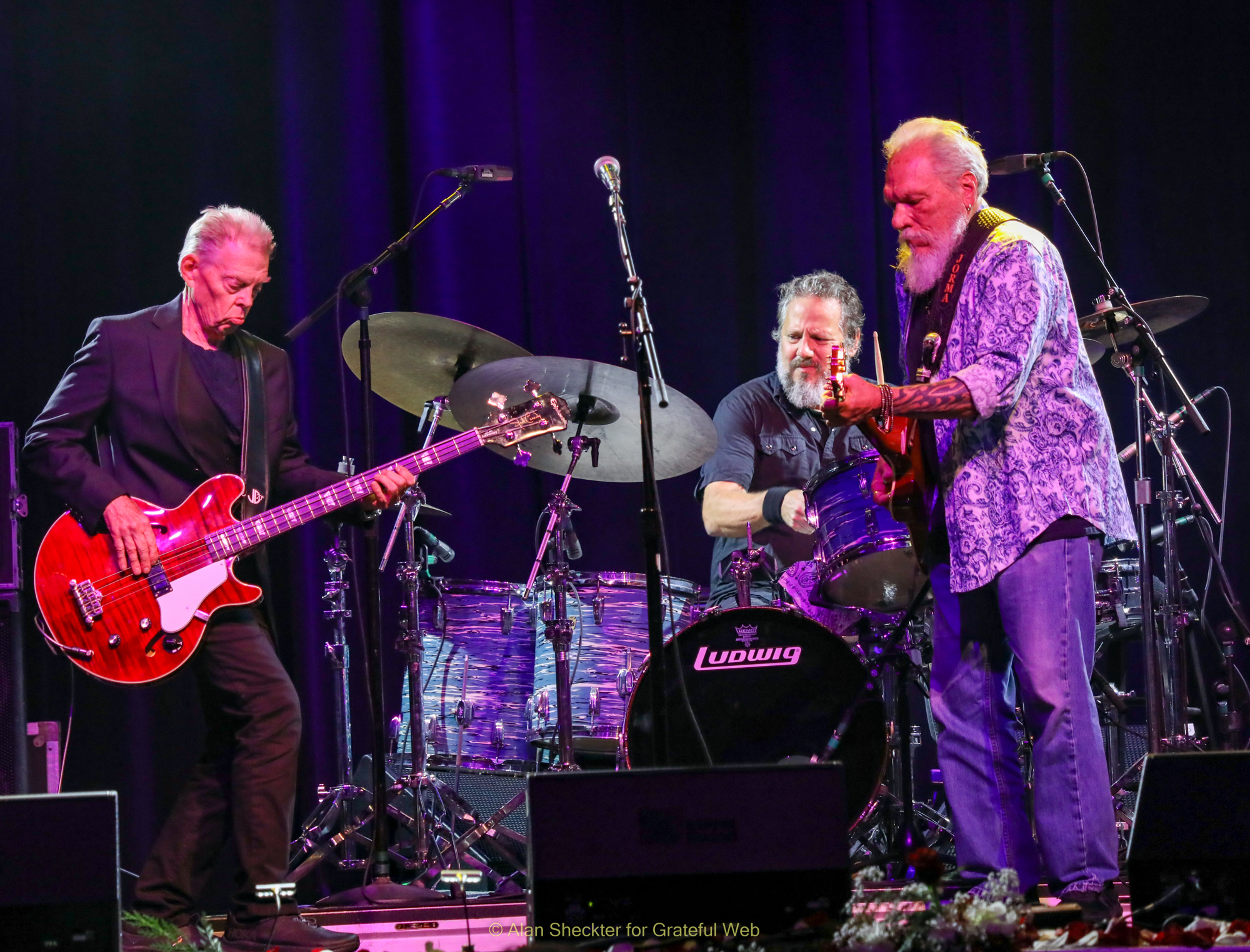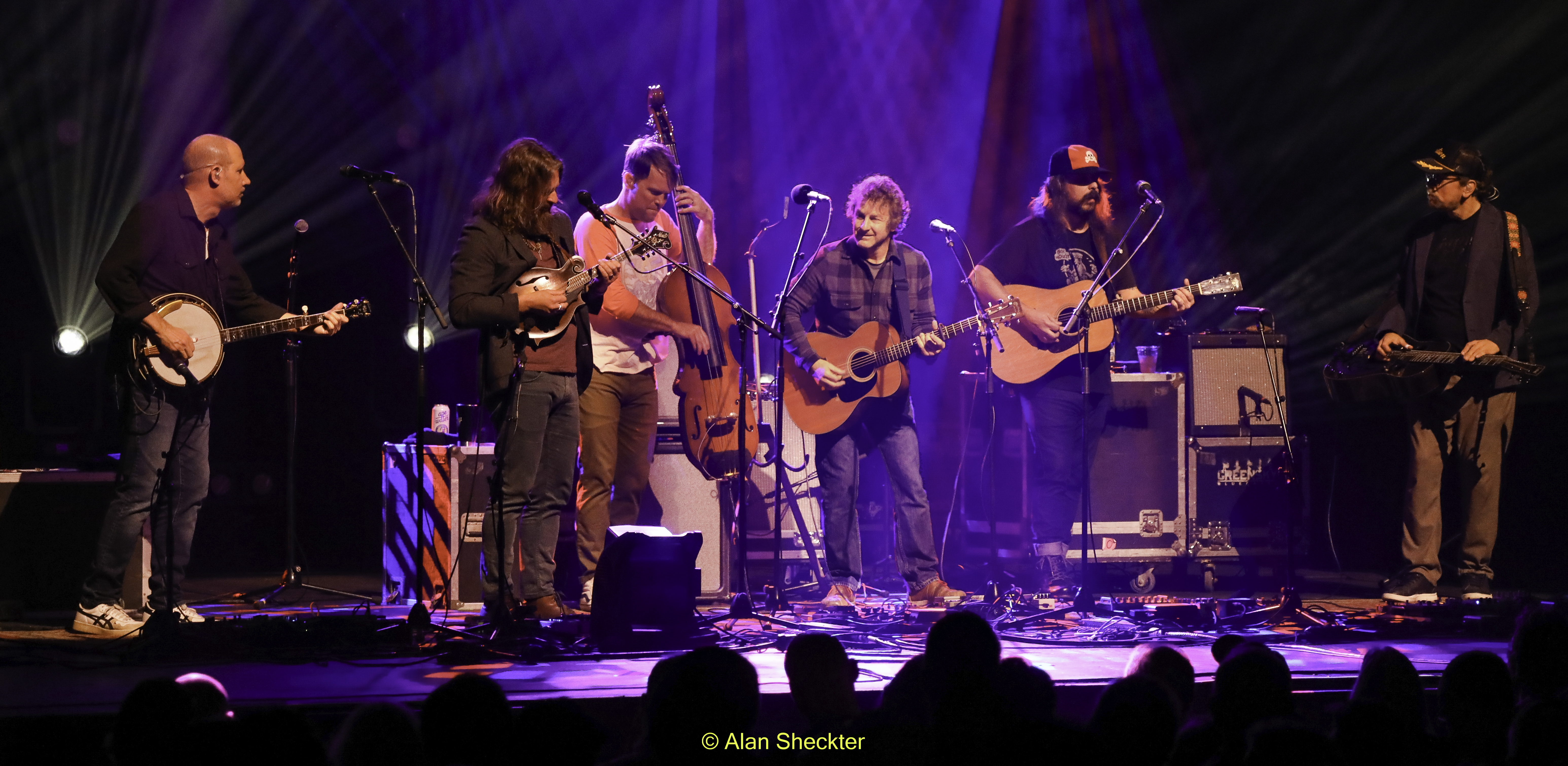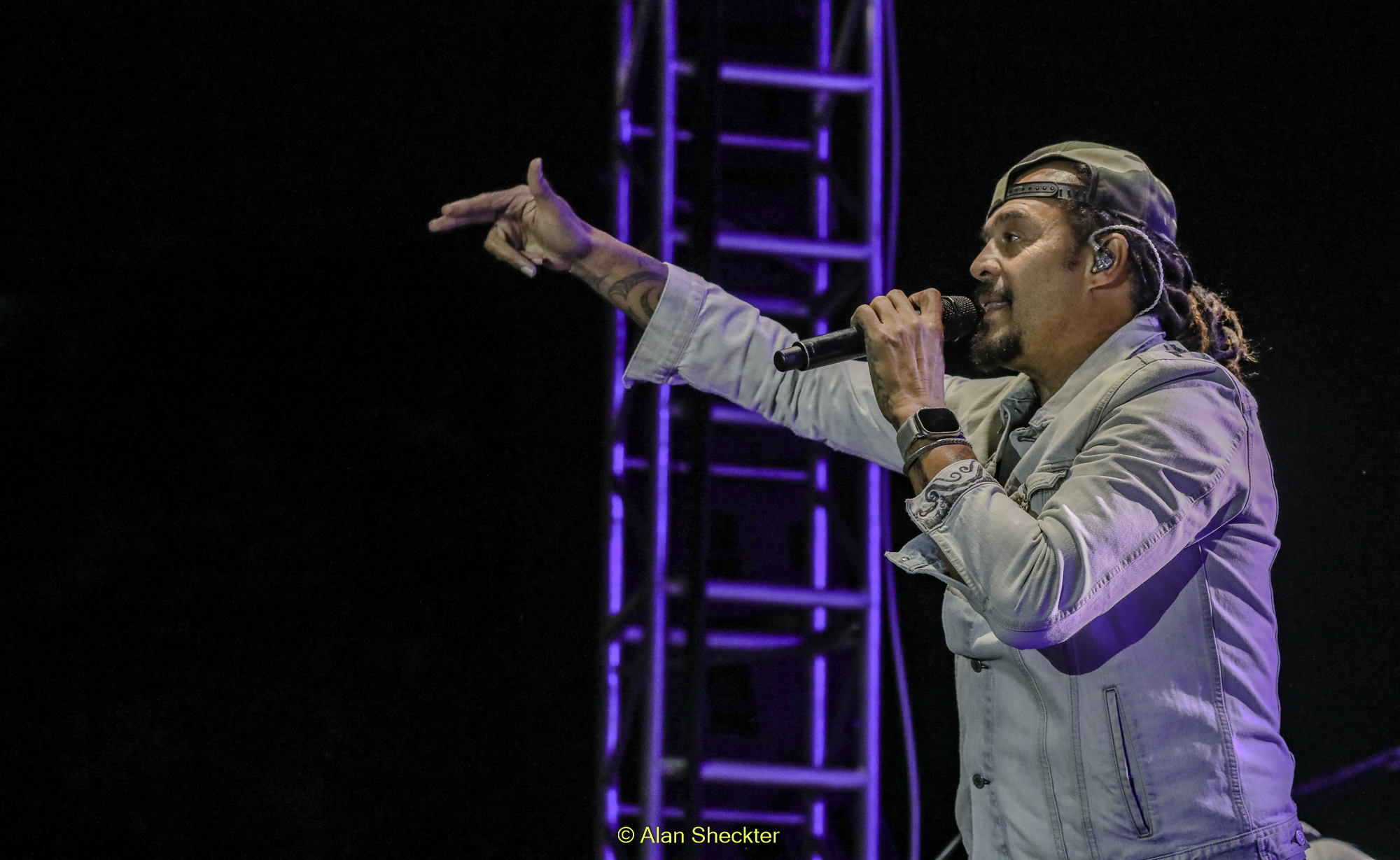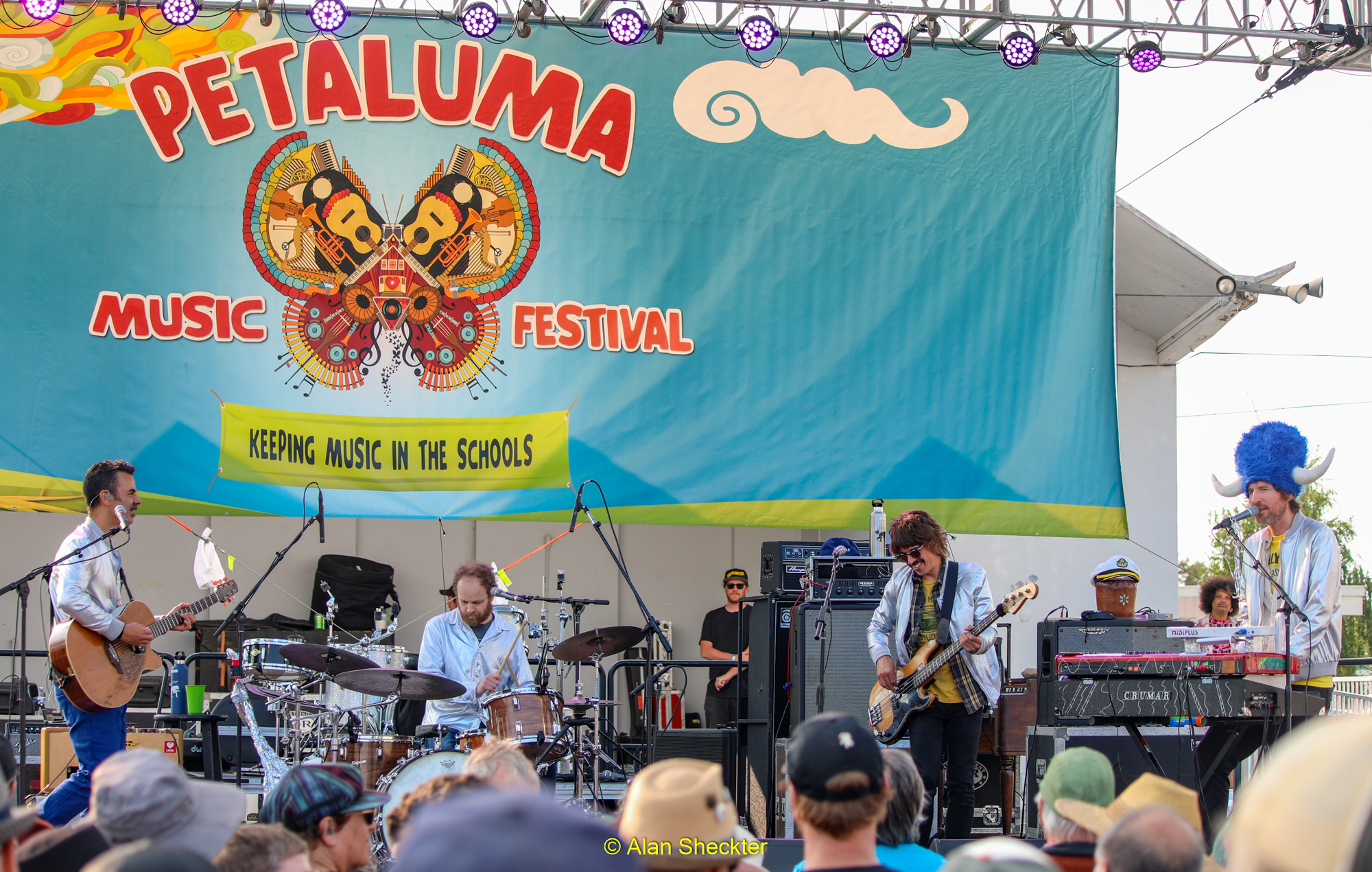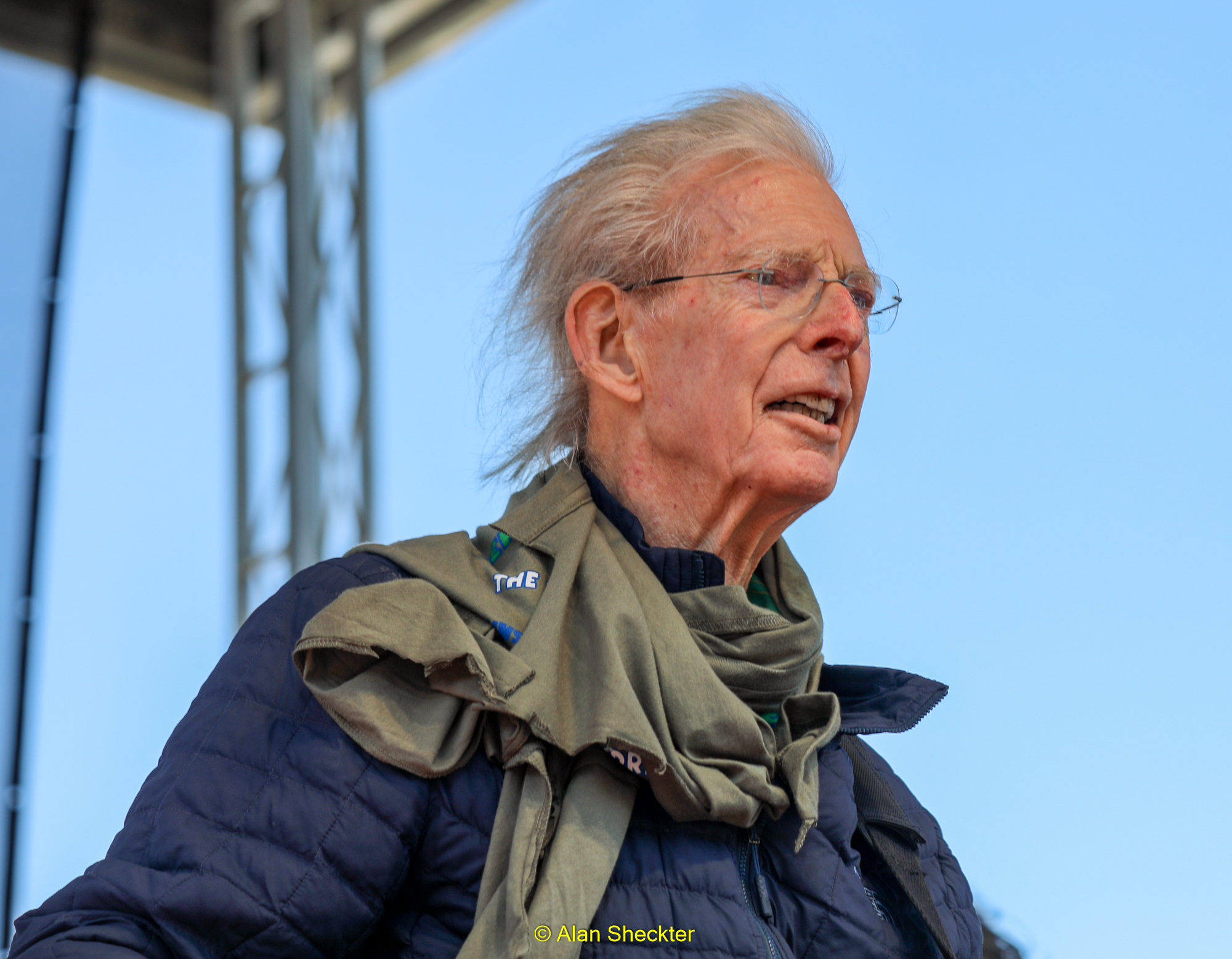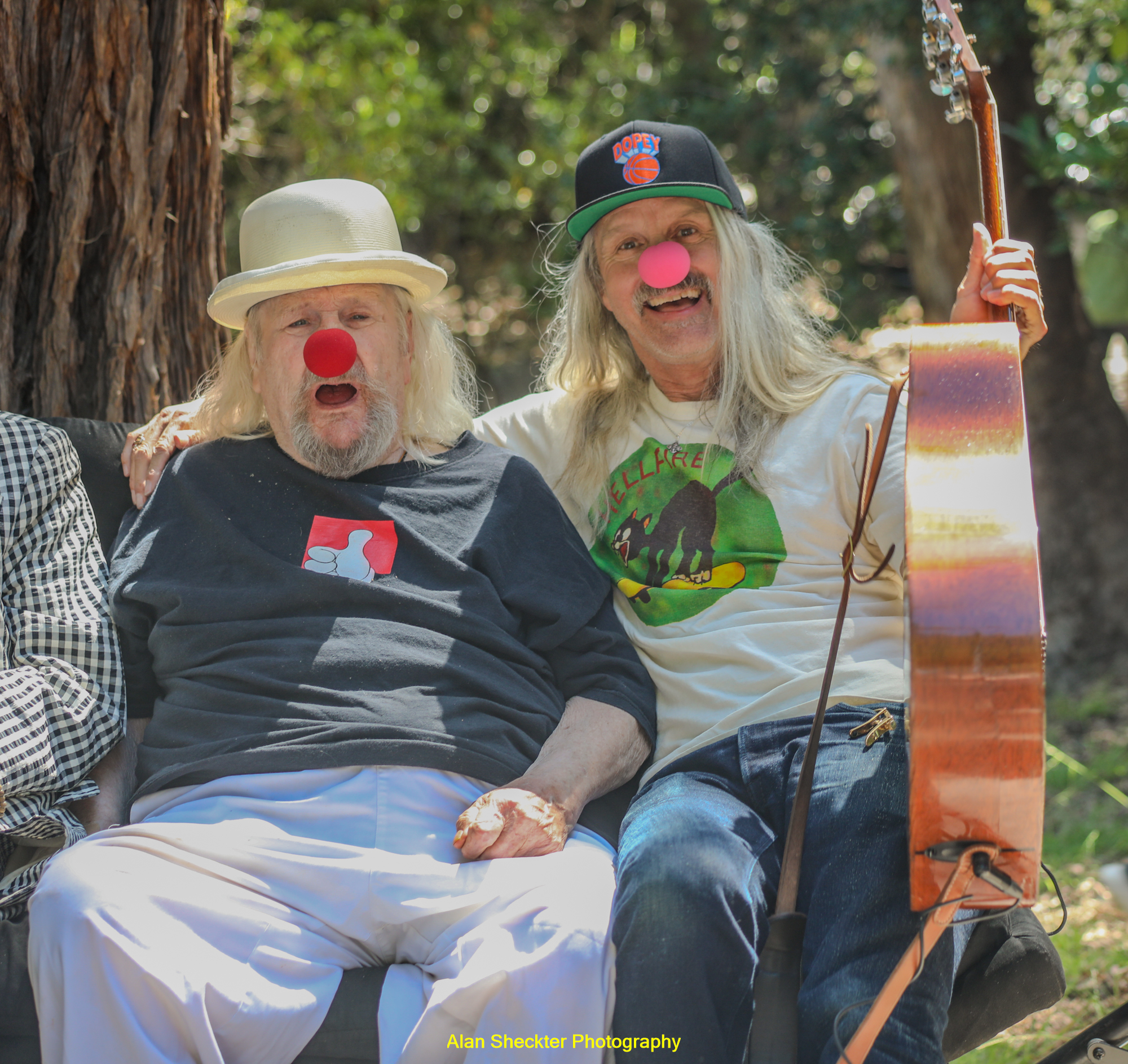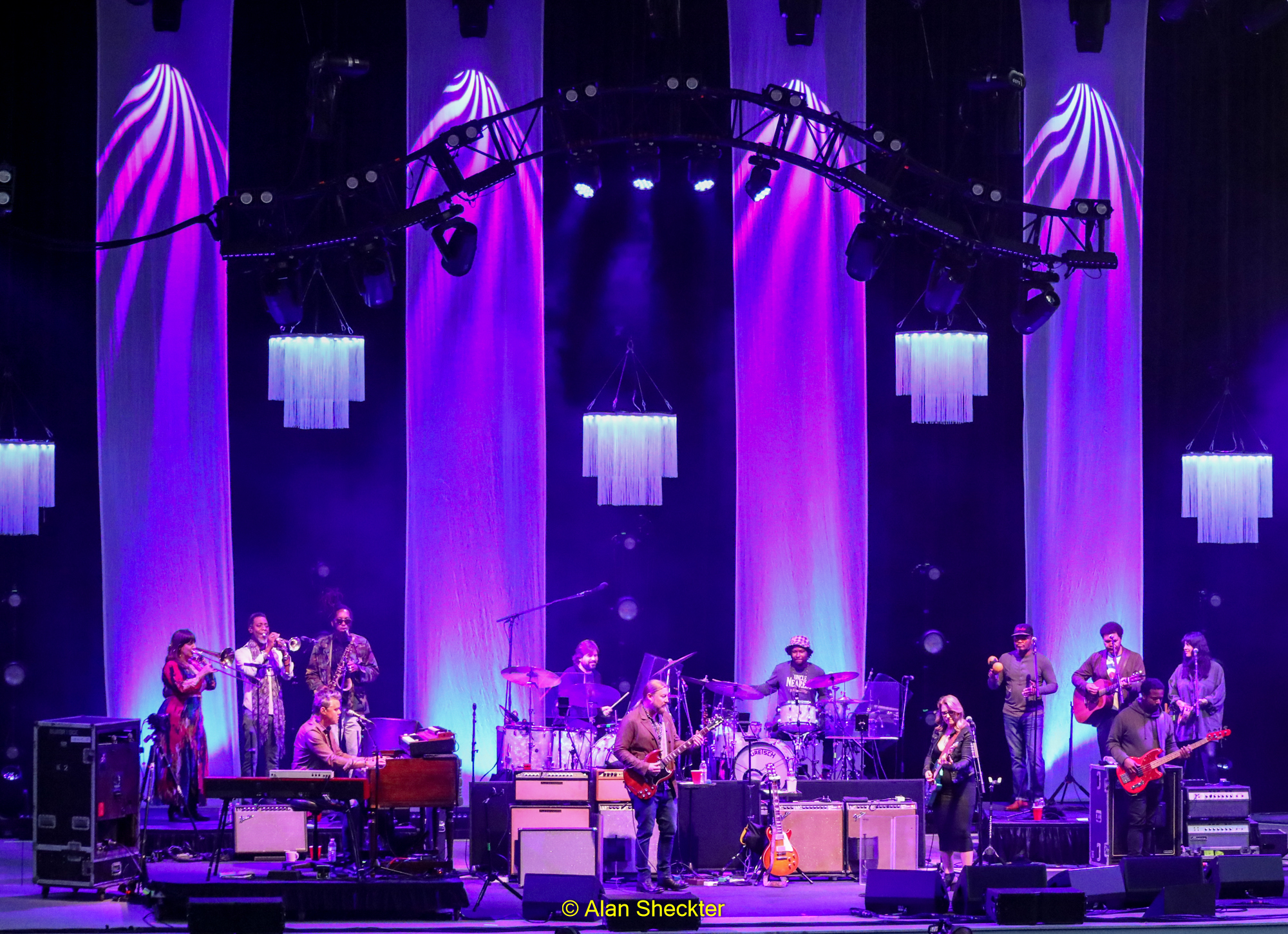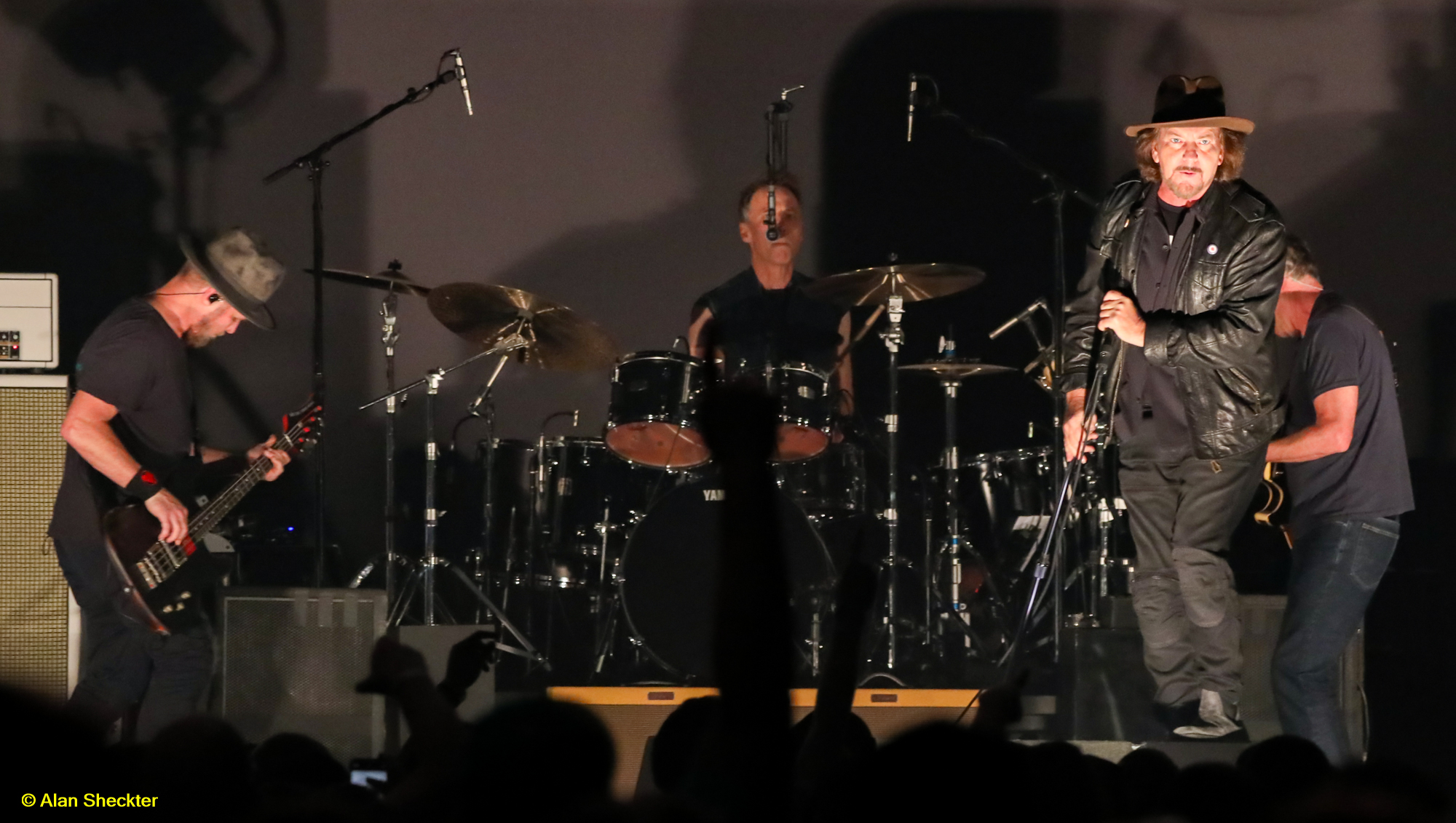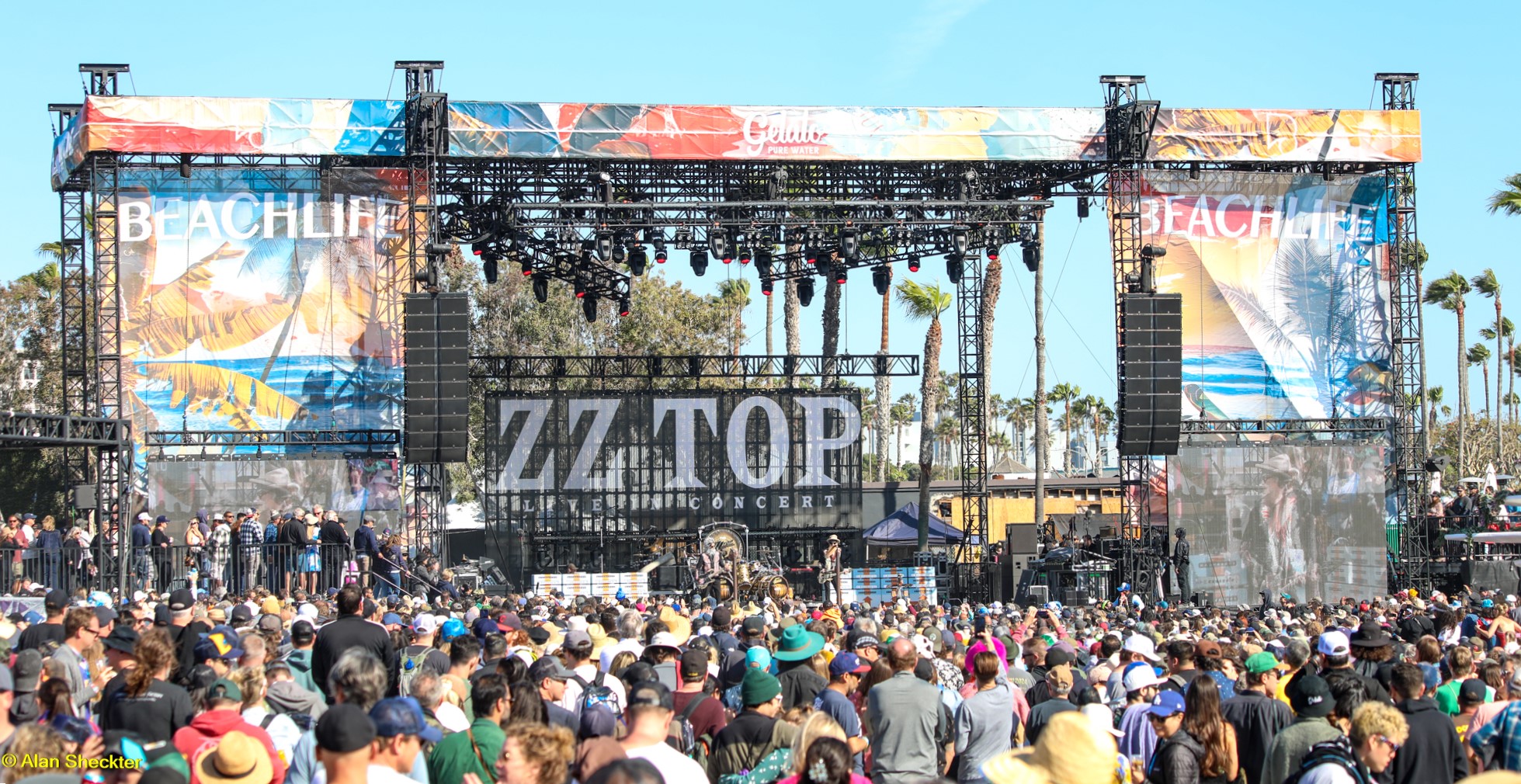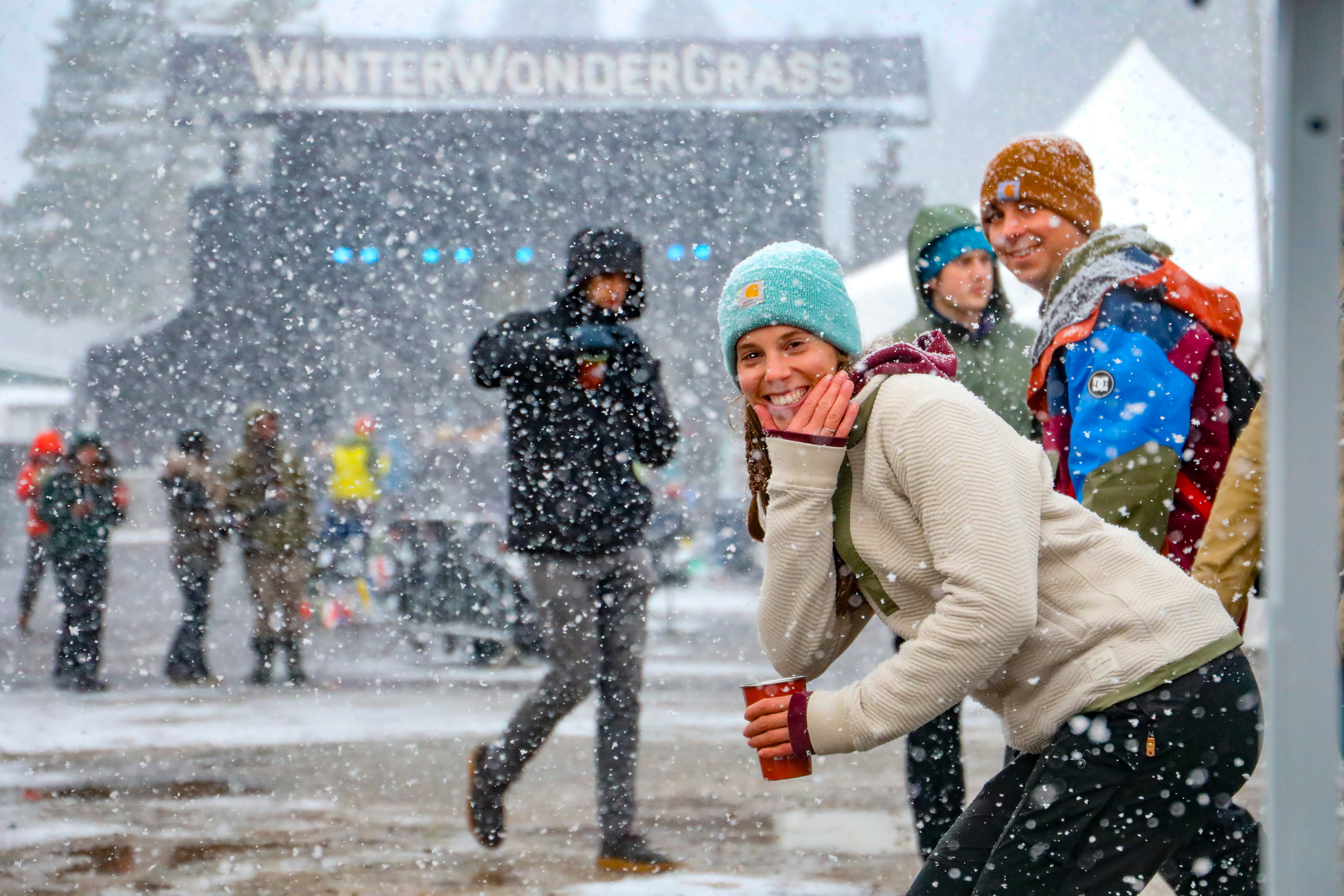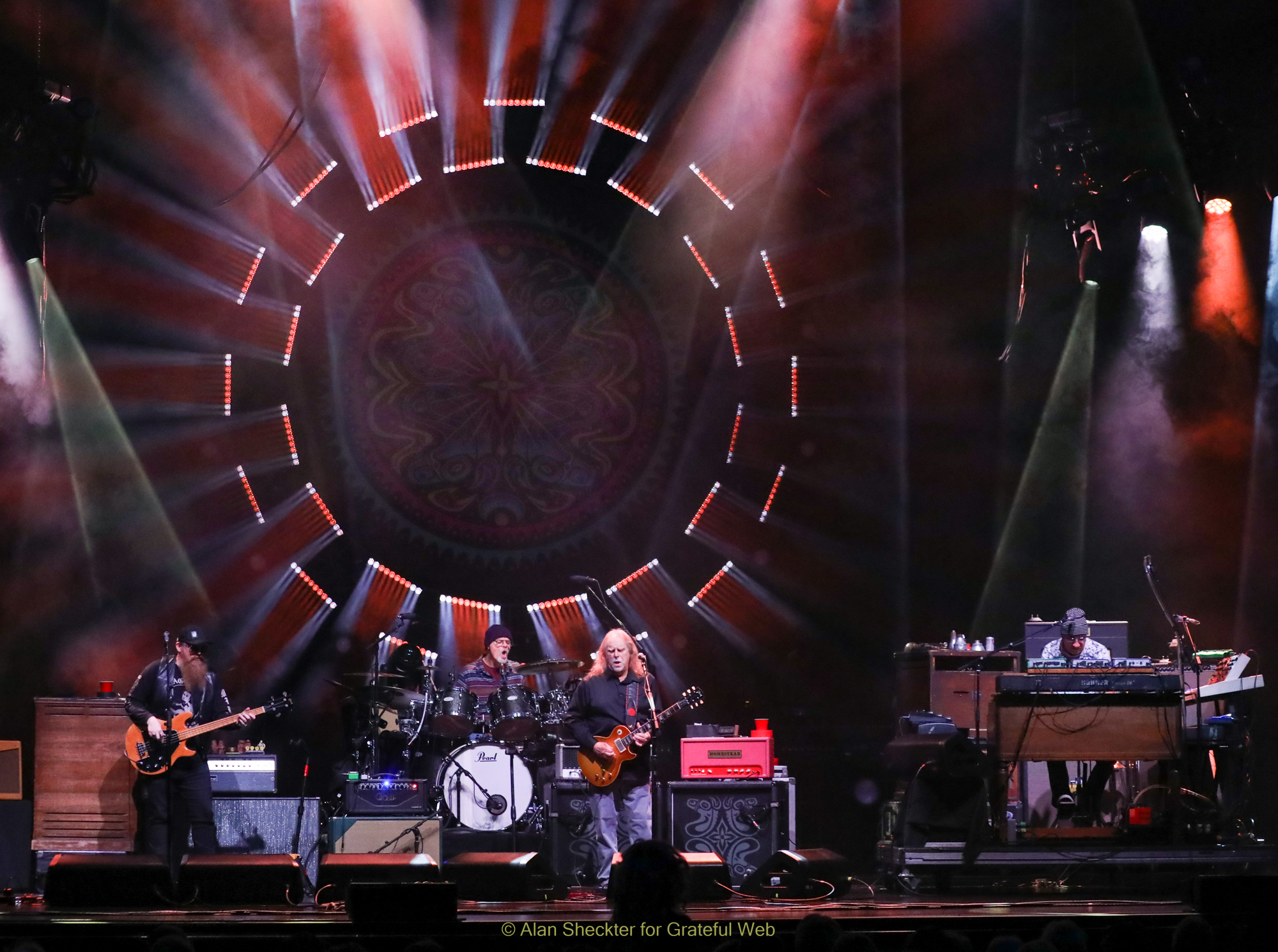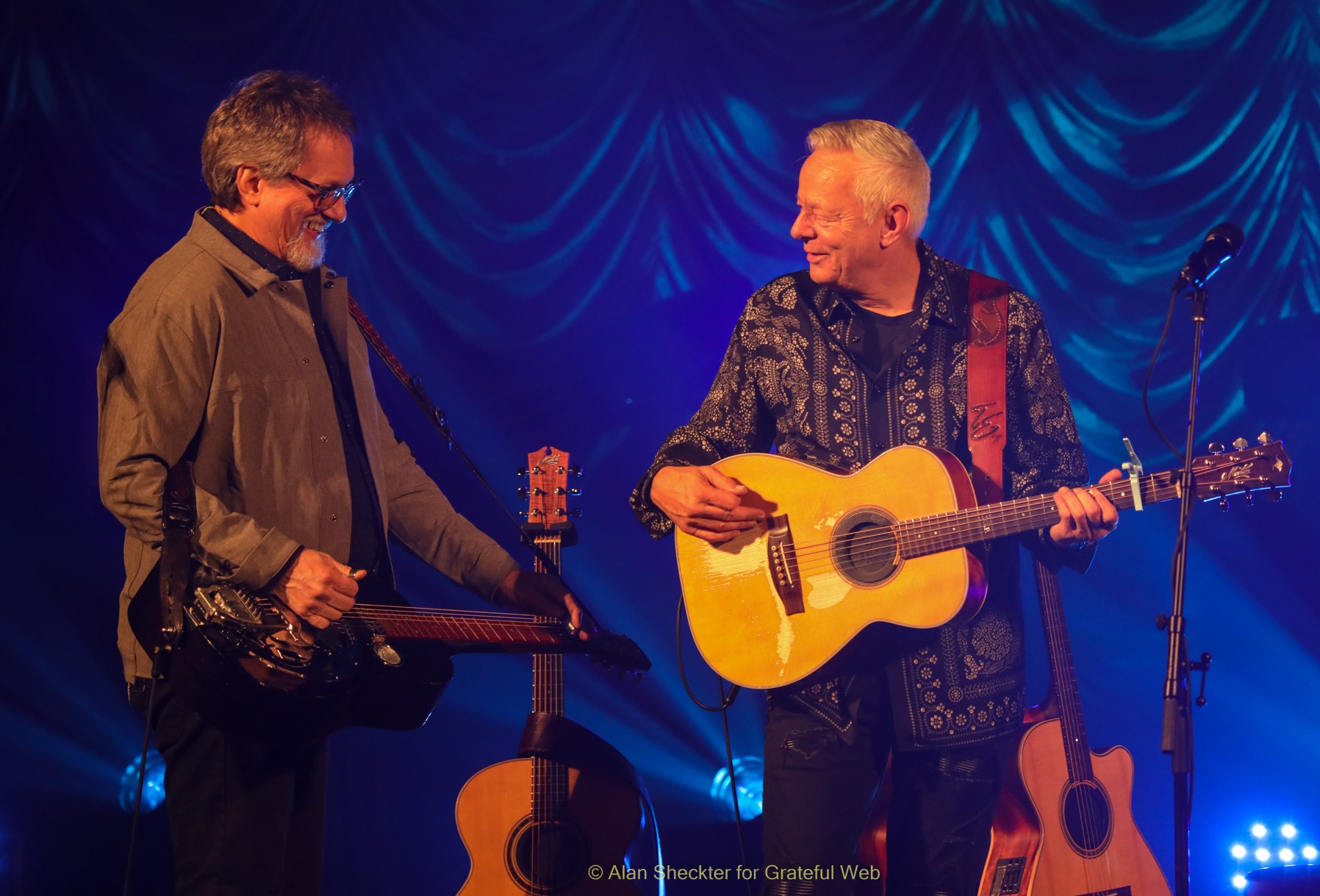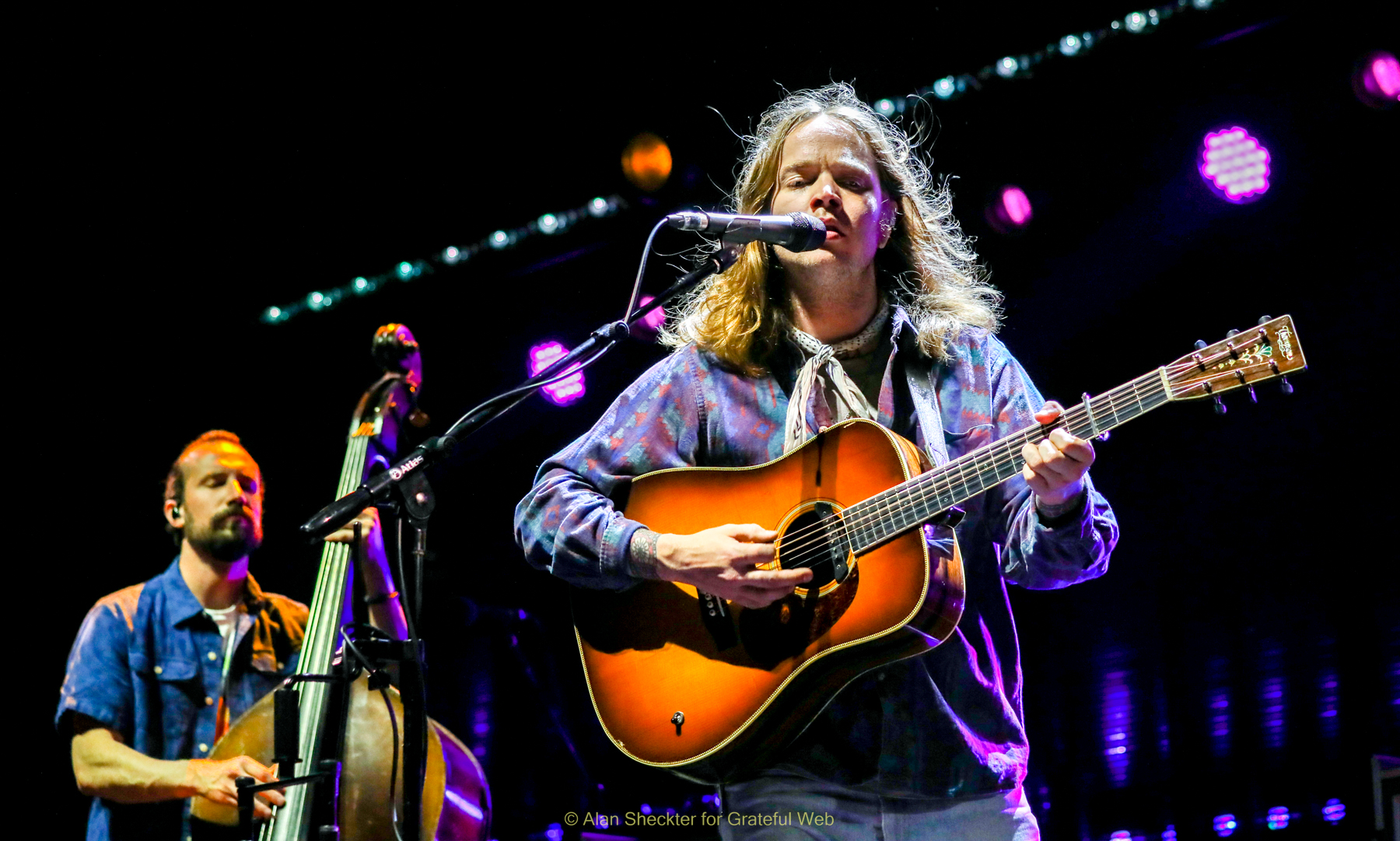After 54 years of service, at “An Intimate Evening Benefiting the Rex Foundation,” Hot Tuna on December 2 put a culminating exclamation point on the compelling electric rock ‘n’ blues performances that the band has been known for. It was Hot Tuna’s final electric concert in California; the final, final electric show was to take place in Denver on Dec. 7. Mesmerizing as an electric or acoustic outfit, acoustic Hot Tuna will continue on in 2024.
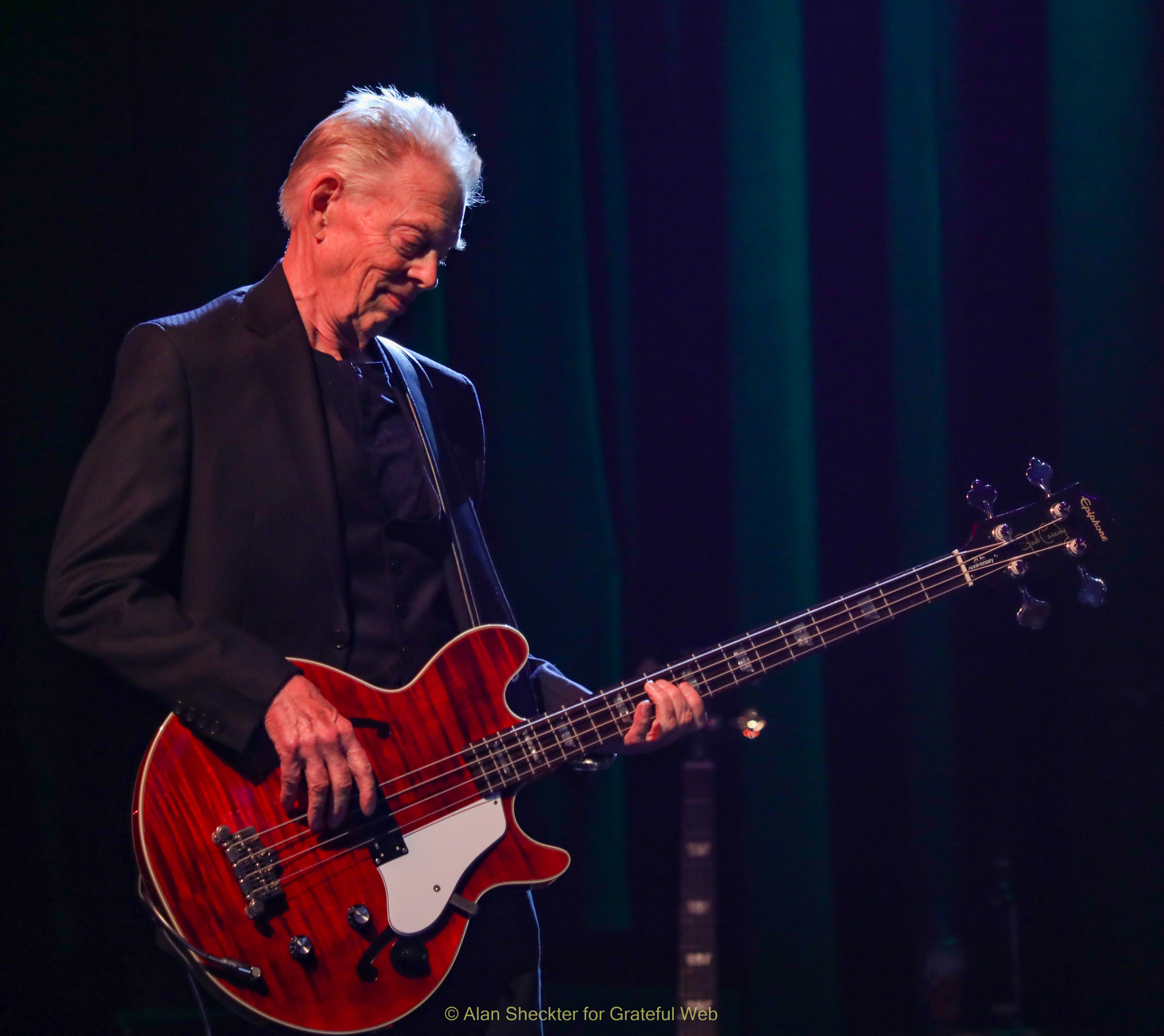
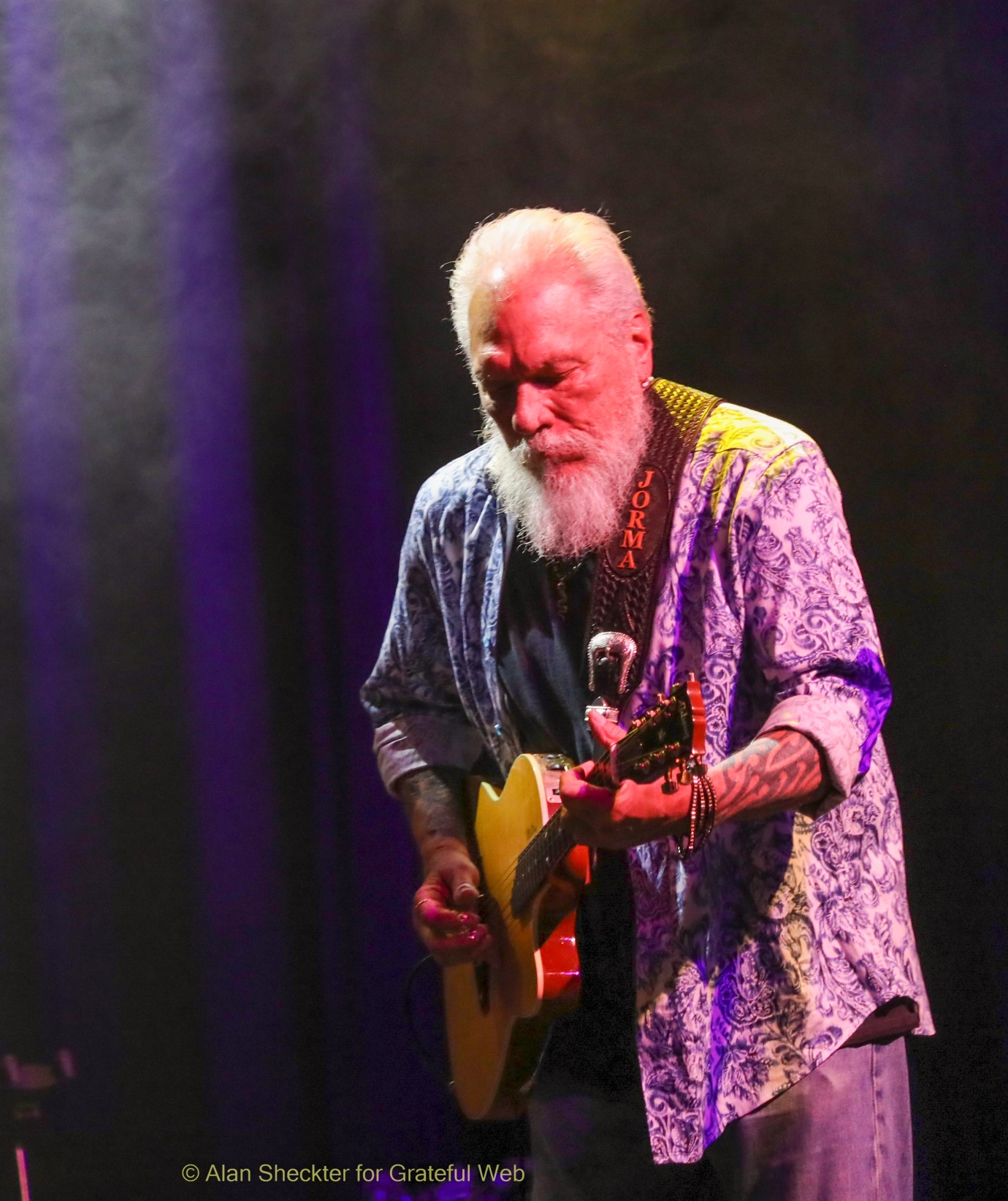
Hot Tuna mainstays Jorma Kaukonen (guitars/vocals) and Jack Casady (bass) are forever linked with the Jefferson Airplane, the seminal psychedelic San Francisco band for which they were core members from 1965 to 1972. The duo actually started performing together in 1958. “Yikes!” as Kaukonen might say. On their own, Hot Tuna has been performing for nearly 55 years. The exact date of the first Hot Tuna performance is tough to pinpoint, though Kaukonen and Casady were, by 1968, performing outside of the Jefferson Airplane though had not yet adopted the “Hot Tuna” moniker. By January 1969, Hot Tuna performances at The Matrix in San Francisco are well documented.
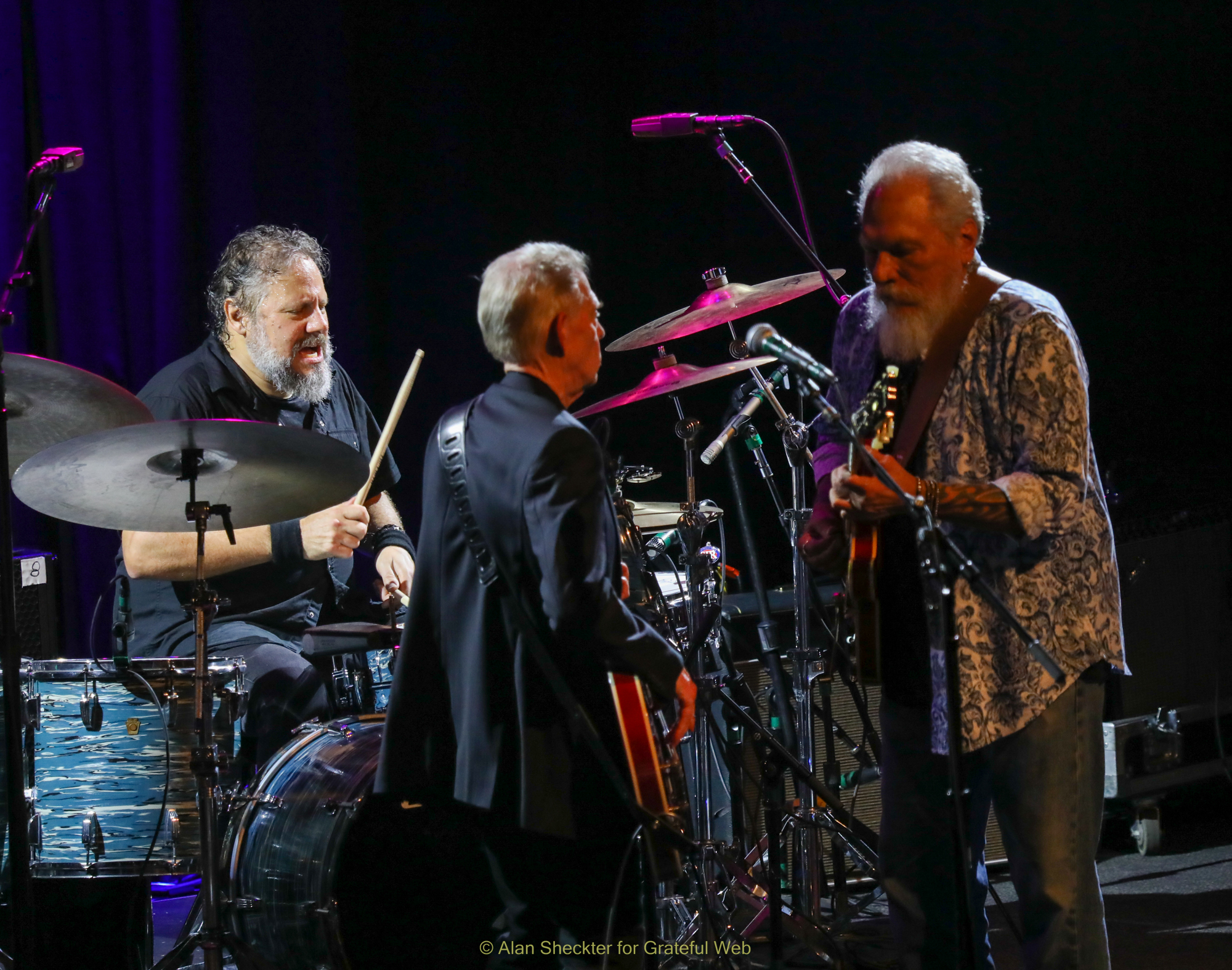
Along with Kaukonen and Casady, and drummer Justin Guip, who has commanded the drumkit for the Hot Tuna power trio for the past 10 years, the band also included long-time musical friends/collaborators Larry Campbell (guitars, fiddle) and Teresa Williams (vocals), as well as Steve Bernstein (trumpet/slide trumpet). Campbell, Williams, and Bernstein were part of Levon Helm’s Midnight Ramble Band (prior to and after Helm’s passing in 2012). Campbell and Williams also contributed to Hot Tuna’s “Steady As She Goes” album, released in 2011.
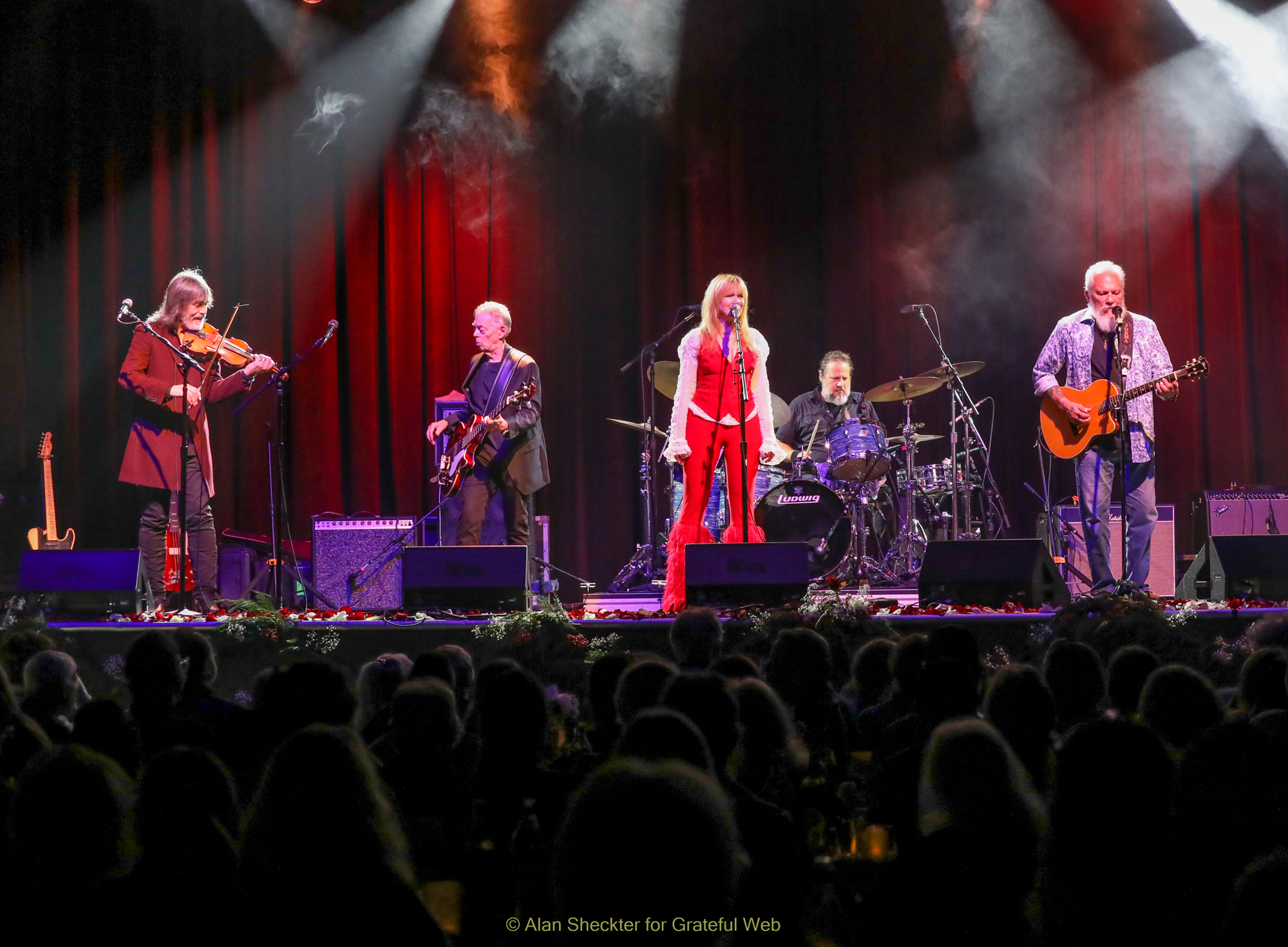
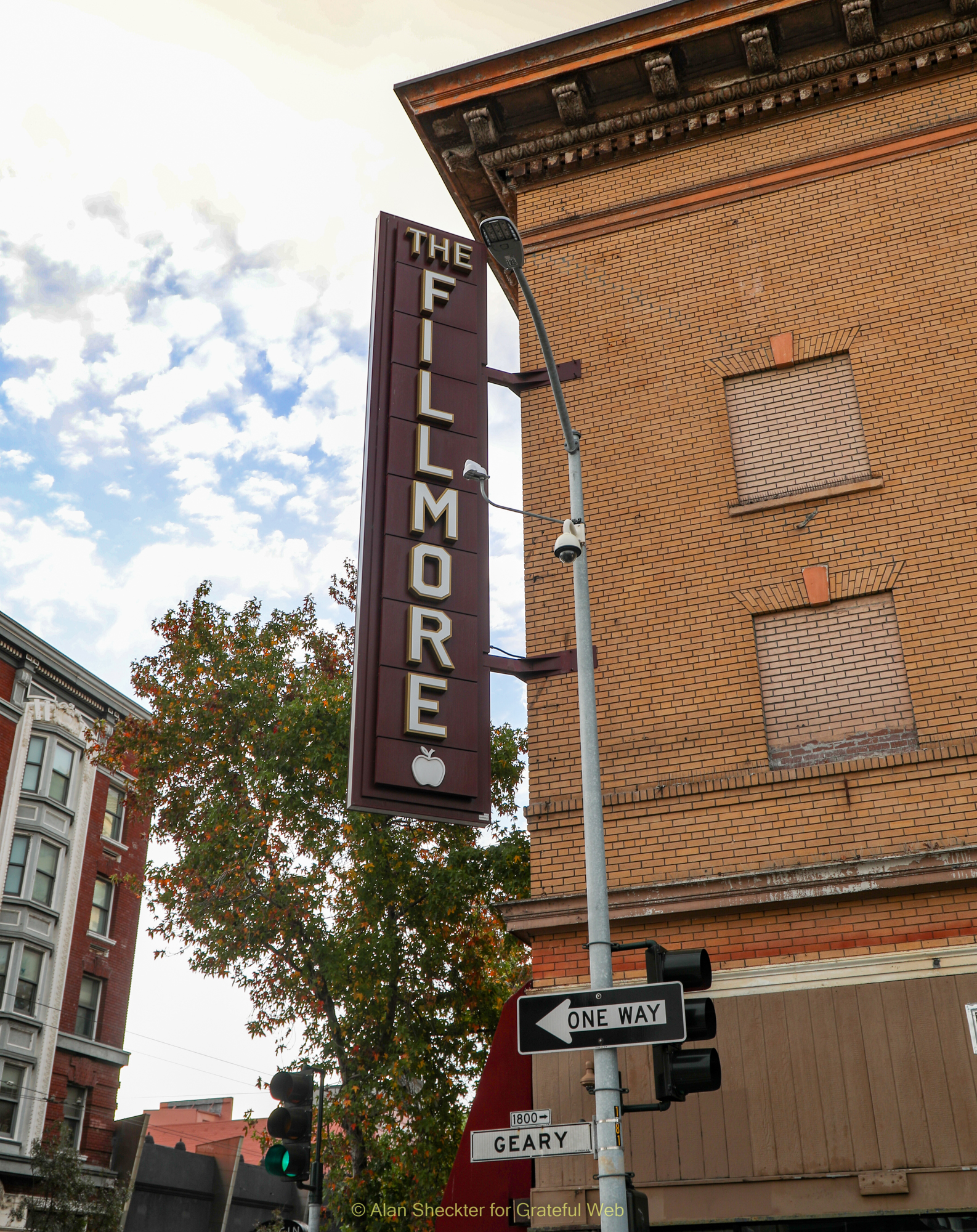
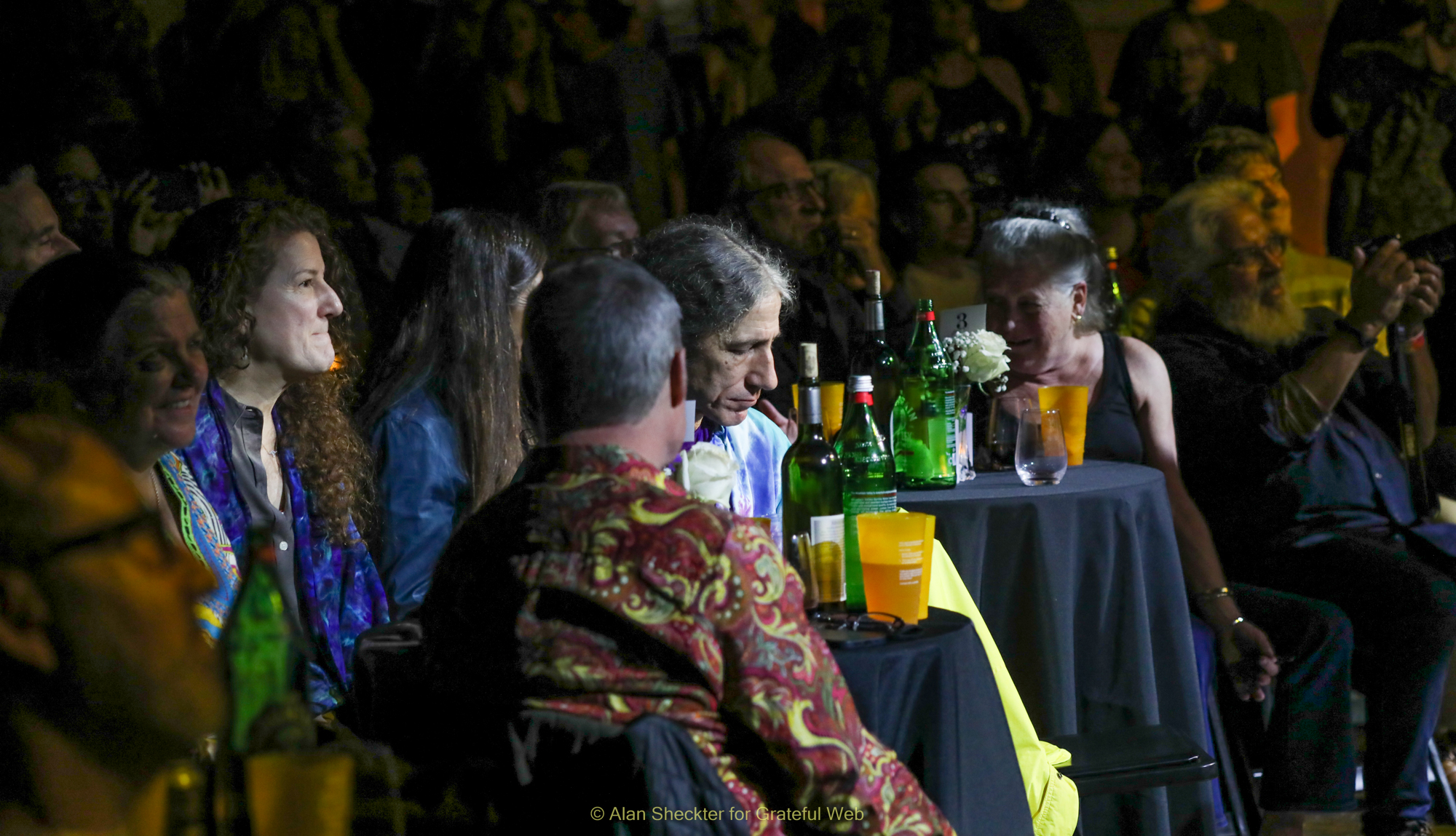
The sold-out Rex Foundation benefit (reserved-table tickets ranged from $250 to $1,250 for the cause) was a catered, sit-down affair, with perhaps 500 people in attendance – a much different vibe than the night before, when Hot Tuna performed a more typical show, a sold-out, standing-room-only concert at the 1,315-person-capacity room.
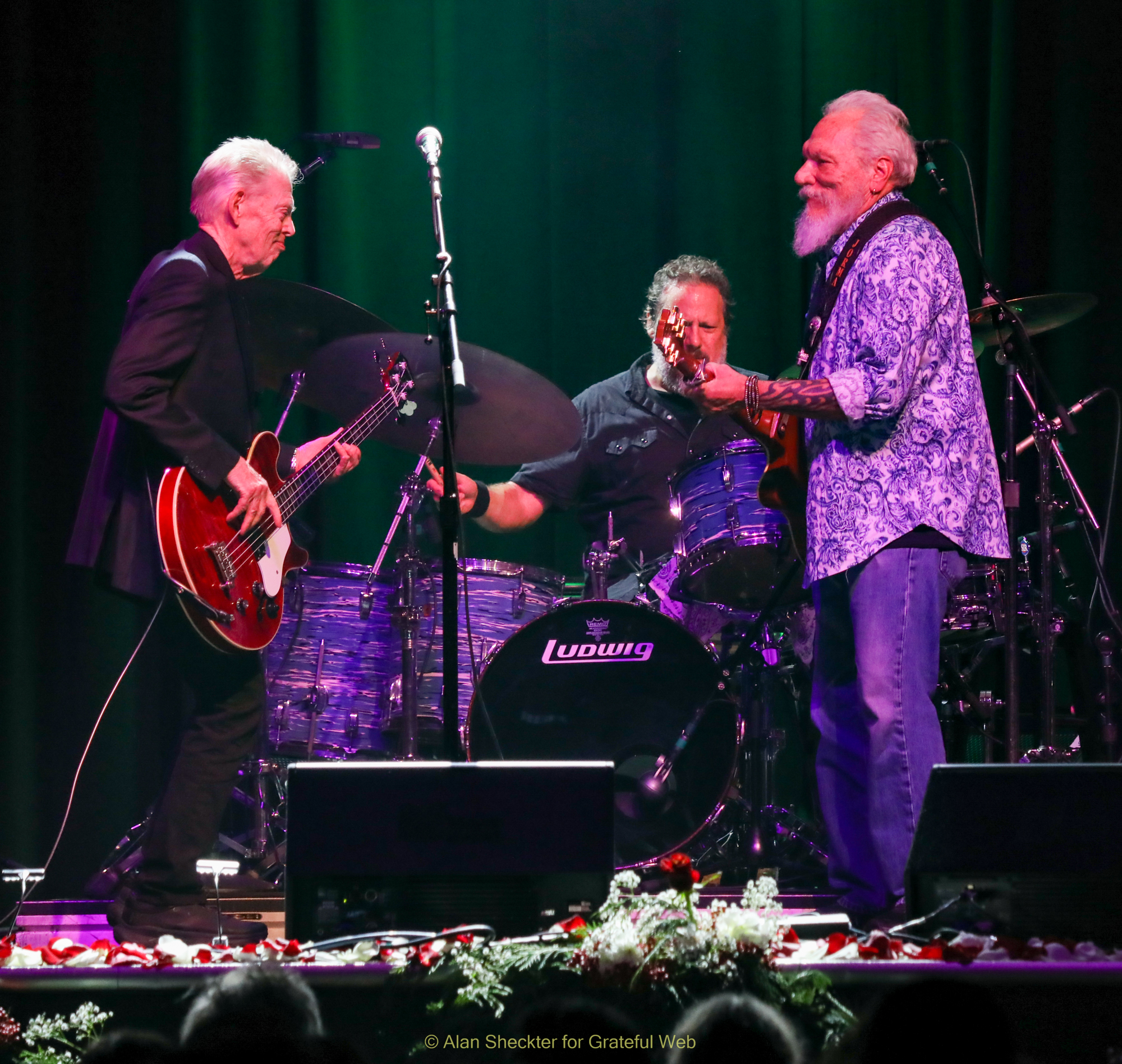
Here at the Rex benefit, Hot Tuna performed two sets over three-plus hours, including Hot Tuna favorites, several selections that go back to the Jefferson Airplane days, and a bunch of the beloved pieces of music from the seemingly innumerable covers in the Hot Tuna catalogue that provide listeners with a rich aural look back at some of the great Delta blues and traditional country blues players.
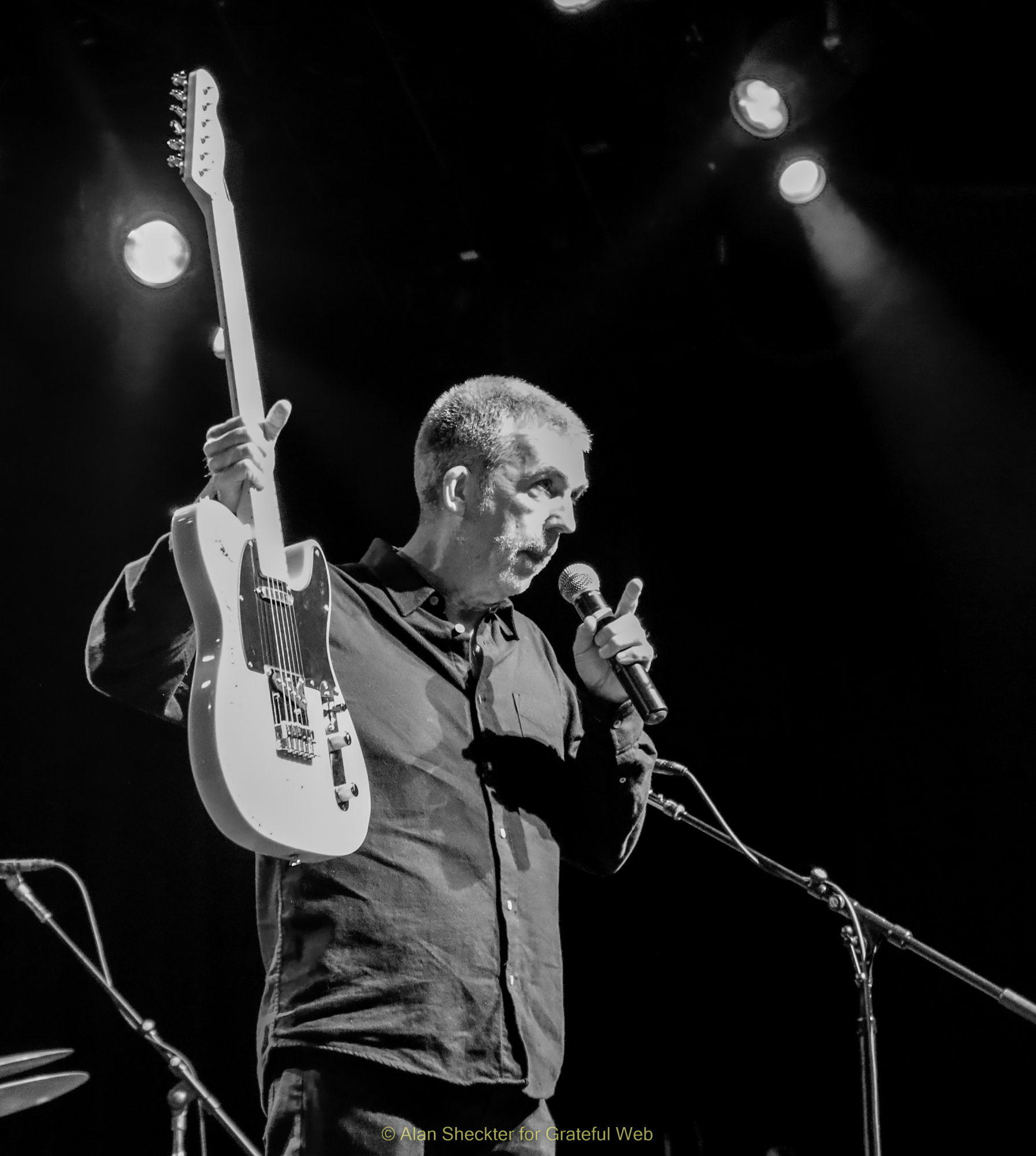
Cameron Sears, longtime executive director of the Rex Foundation, said a few days after the event what it meant to him to have Hot Tuna perform at this benefit: “The Rex Benefit this year, featuring the last performance of Electric Hot Tuna, was significant,” he said. “On December 10, 1965, Bill Graham produced his first show at the Fillmore as the San Francisco Mime Troupe manager. The show benefited the Mime Troupe and was focused on maintaining their free speech rights to perform in Golden Gate Park. The show featured many San Francisco bands. Principal among them was the Jefferson Airplane and the second appearance of the Grateful Dead, who had just changed their name from the Warlocks the previous week. Fast forward to today, and 58 years later, Jorma and Jack return to the Fillmore for another benefit, this time for the Rex Foundation, founded by the Grateful Dead. Rex was established to continue the tradition established in Haight-Ashbury of giving back and supporting the development of positive social change. We believe that the work of creating positive social change never ends and that when we all come together to celebrate the music we all love and raise funds for the grants we make to the nonprofits doing the work, excellent results are not only possible they become a reality!”
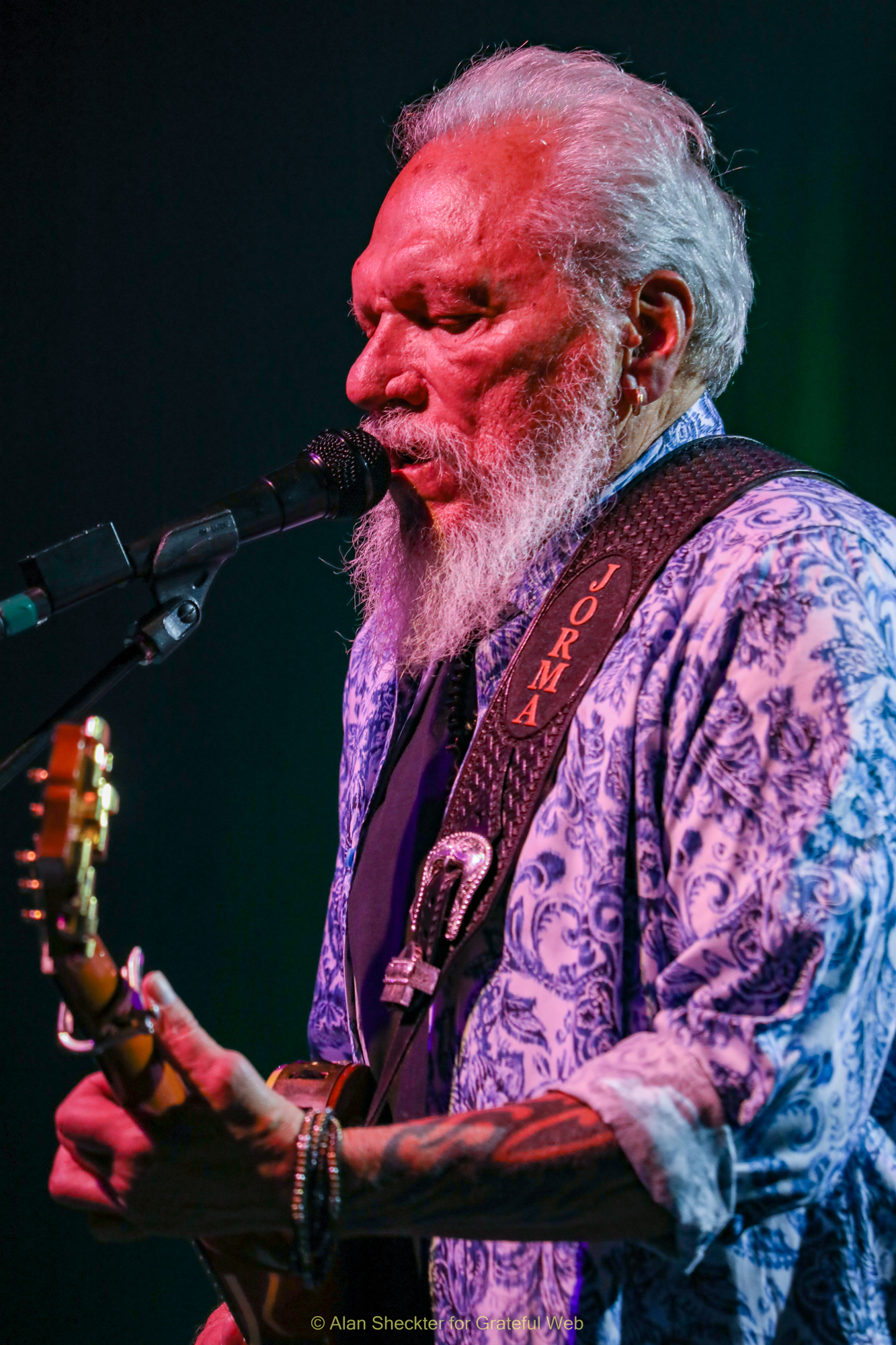
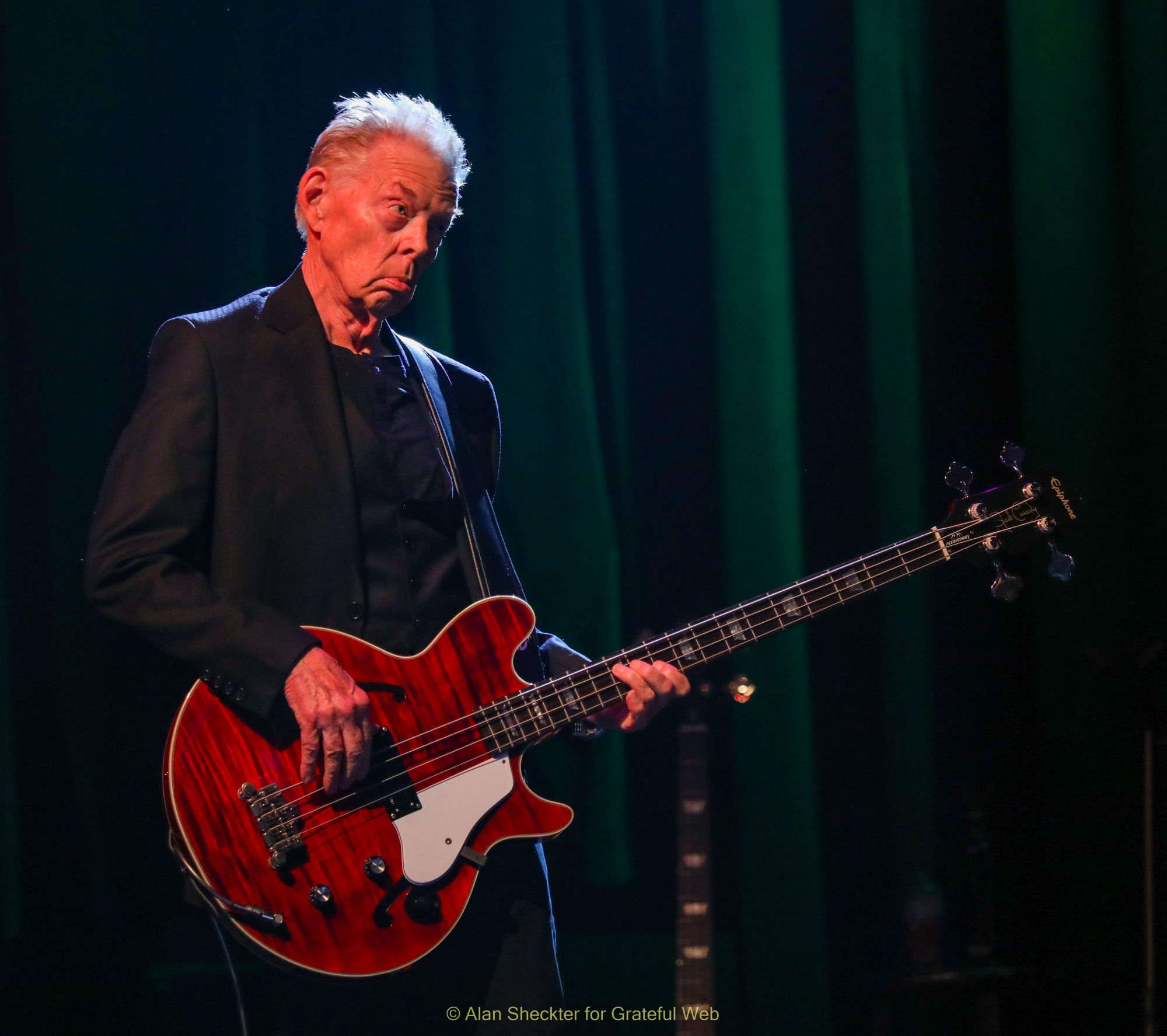
After an introduction by Sears, the core trio (Kaukonen, Casady, and Guip) opened with “Been So Long,” a ballad that appeared on Hot Tuna’s second record, from 1971, “First Pull Up, Then Pull Down,” and was also the title of Kaukonen’s autobiography, published in 2018. The band wound up featuring four songs from that record over the course of the evening.
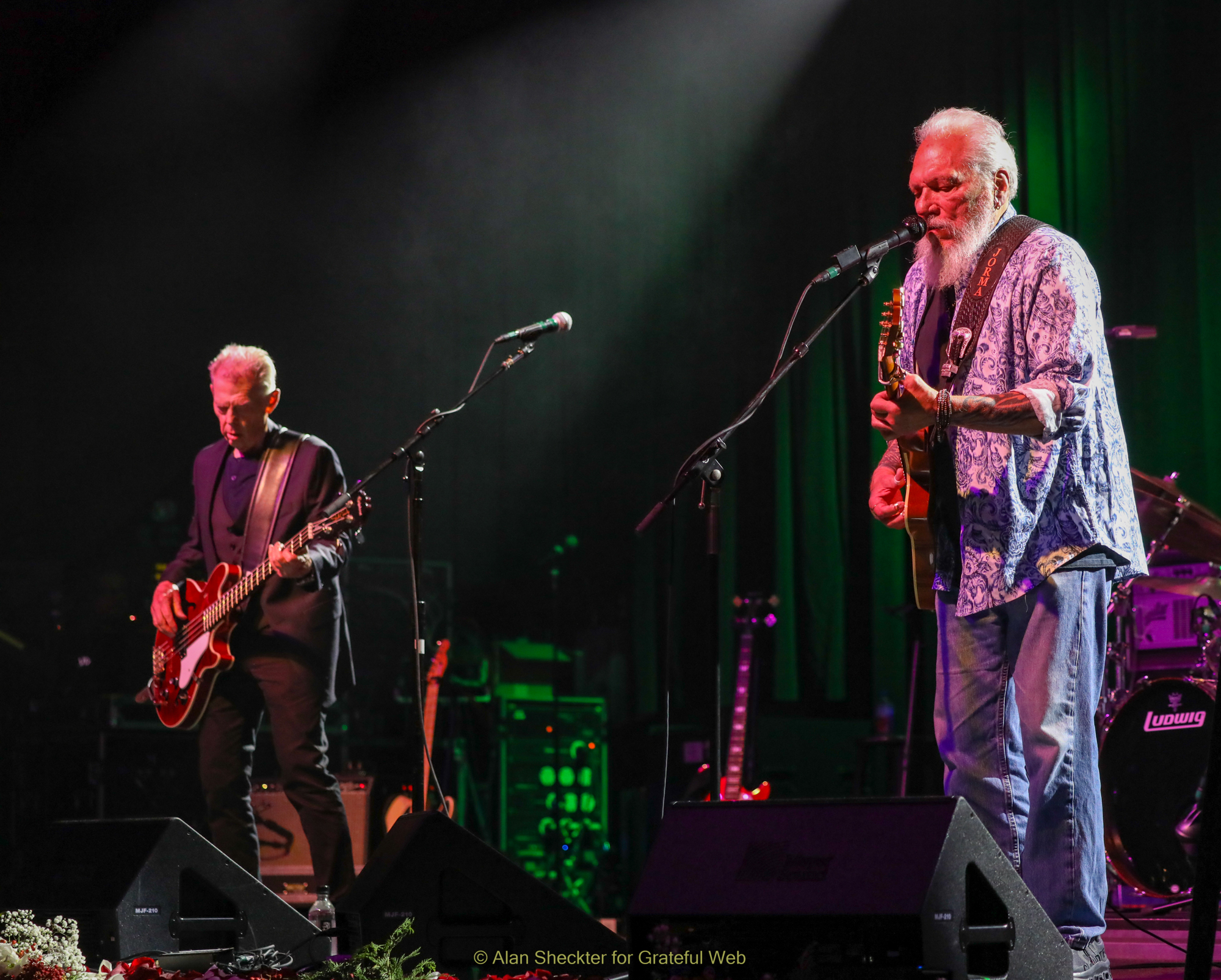
“Hesitation Blues,” Hot Tuna’s most often played number over the years, was next. An enigma, “Hesitation Blues’” origin is muddled, with the first-known version of the song, with lyrics, being perhaps Al Bernard’s 1919 rendition. Here, Bernstein, joined the band. A slide-trumpet master, bandleader, and composer, he played on about one-half of the tunes during the show and added an excellent layer of sound that always enhanced and never detracted.
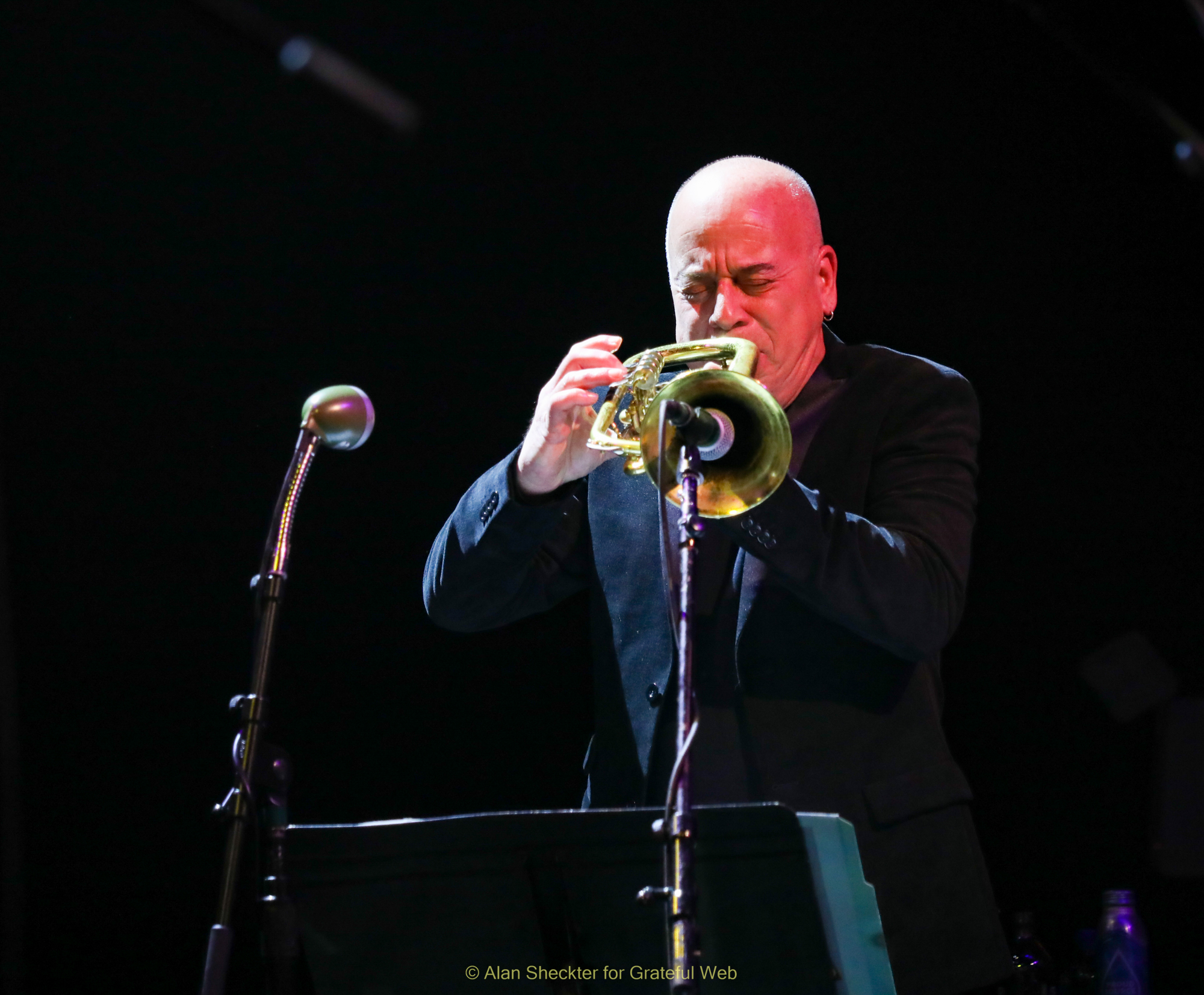
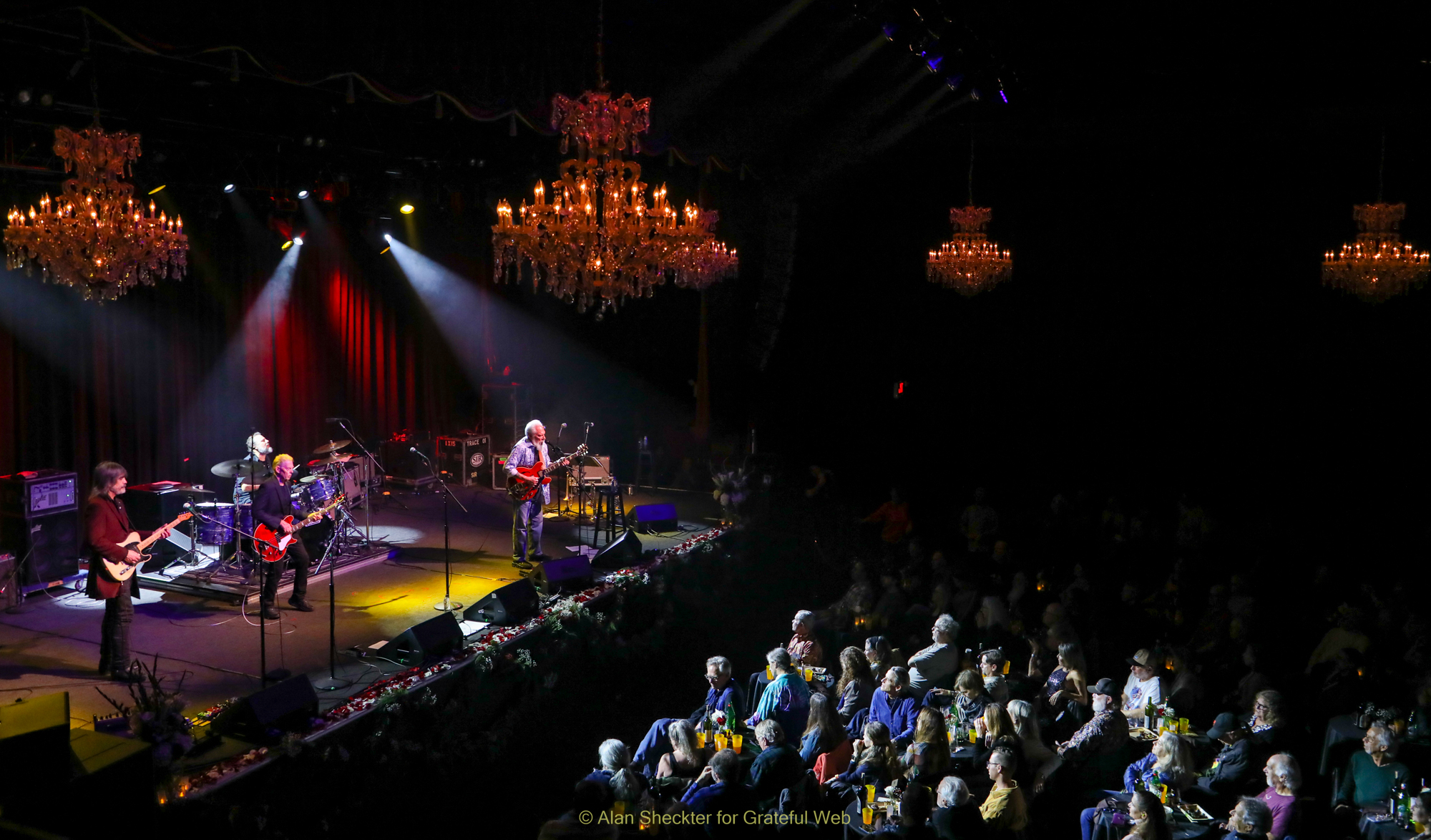
Campbell then joined the band on fiddle for “That’ll Never Happen No More,” the whimsical and delightful Blind Blake tune that Blake recorded in 1927 and which also appeared on Hot Tuna’s “First Pull Up” LP. The first set also included a pair of tunes from “Burgers,” played consecutively – “Ode for Billy Bean” and “Highway Song,” the latter of which included Williams on backing vocals. Overall, Campbell was onstage for about two-thirds of the show and Williams perhaps one-third.
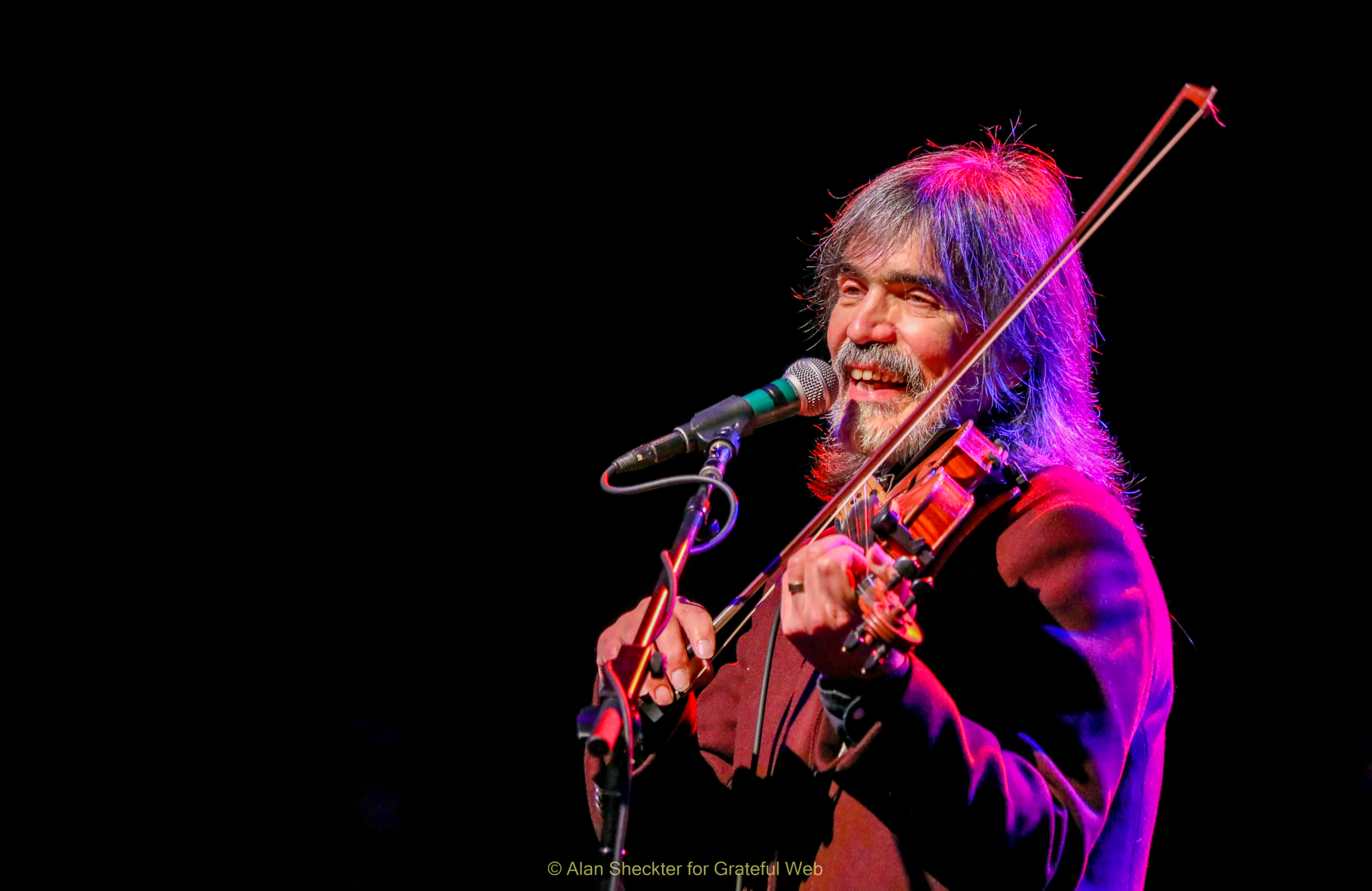
The set ended with a grand, full-throttle version “Bowlegged Woman, Knock Kneed Man,” a funky Bobby Rush soul tune recorded in 1972 that Hot Tuna long since made into their own fiercely powerful number, followed by “Keep Your Lamps Trimmed and Burning,” a gospel tune sometimes credited to Rev. Gary Davis, but written and recorded by Blind Willie Johnson in 1928. Long ago, Hot Tuna elevated “Keep Your Lamps” into an epically jammed out rock ‘n’ blues monster. A July 1971 Hot Tuna version of “Keep Your Lamps” coincidentally appeared on the three-record retrospective, “Fillmore: The Last Days,” which celebrated the Fillmore’s early, iconic glory days. Here, Williams took center stage and passionately assumed lead vocals for a crowd-pleasing version.
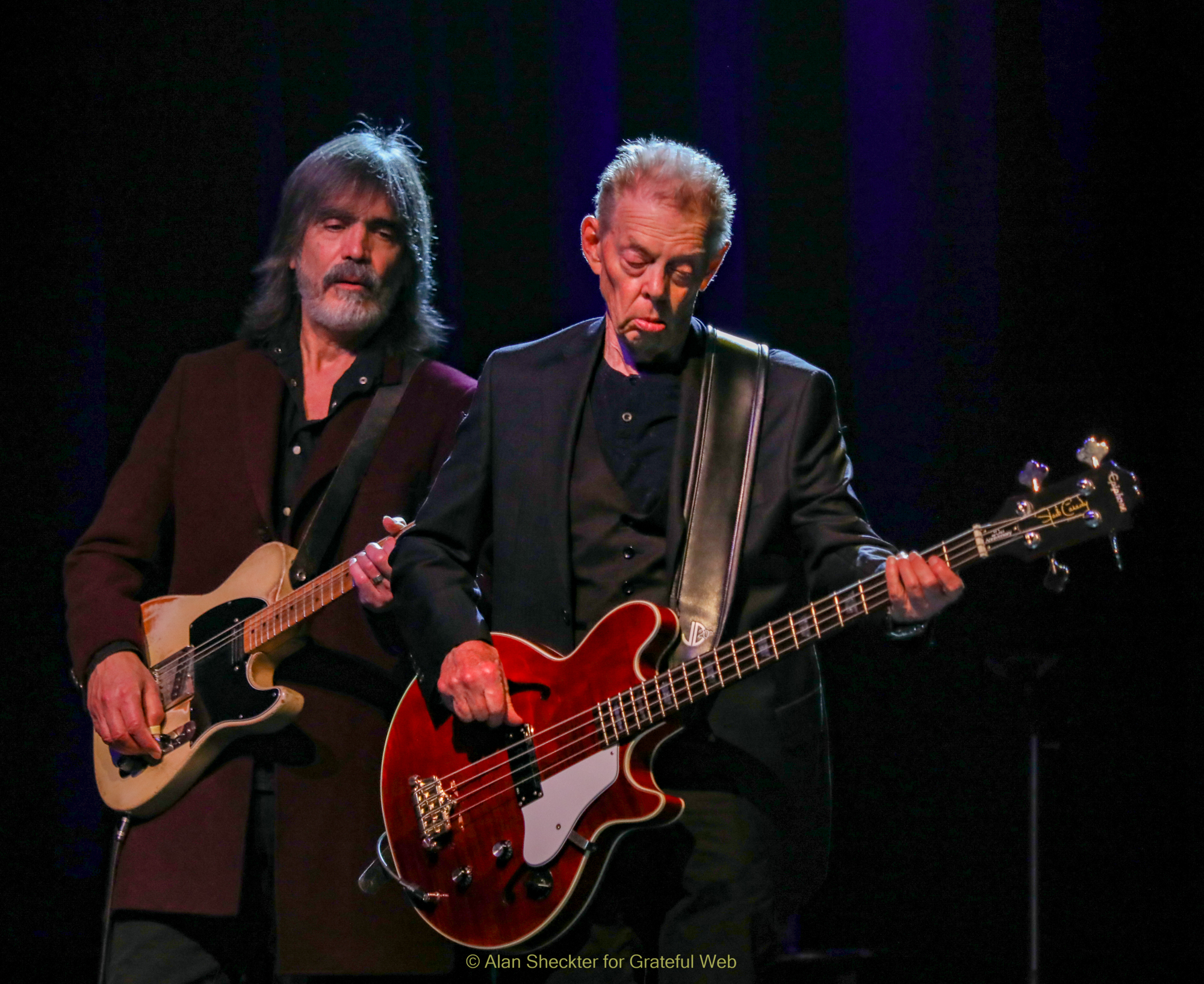
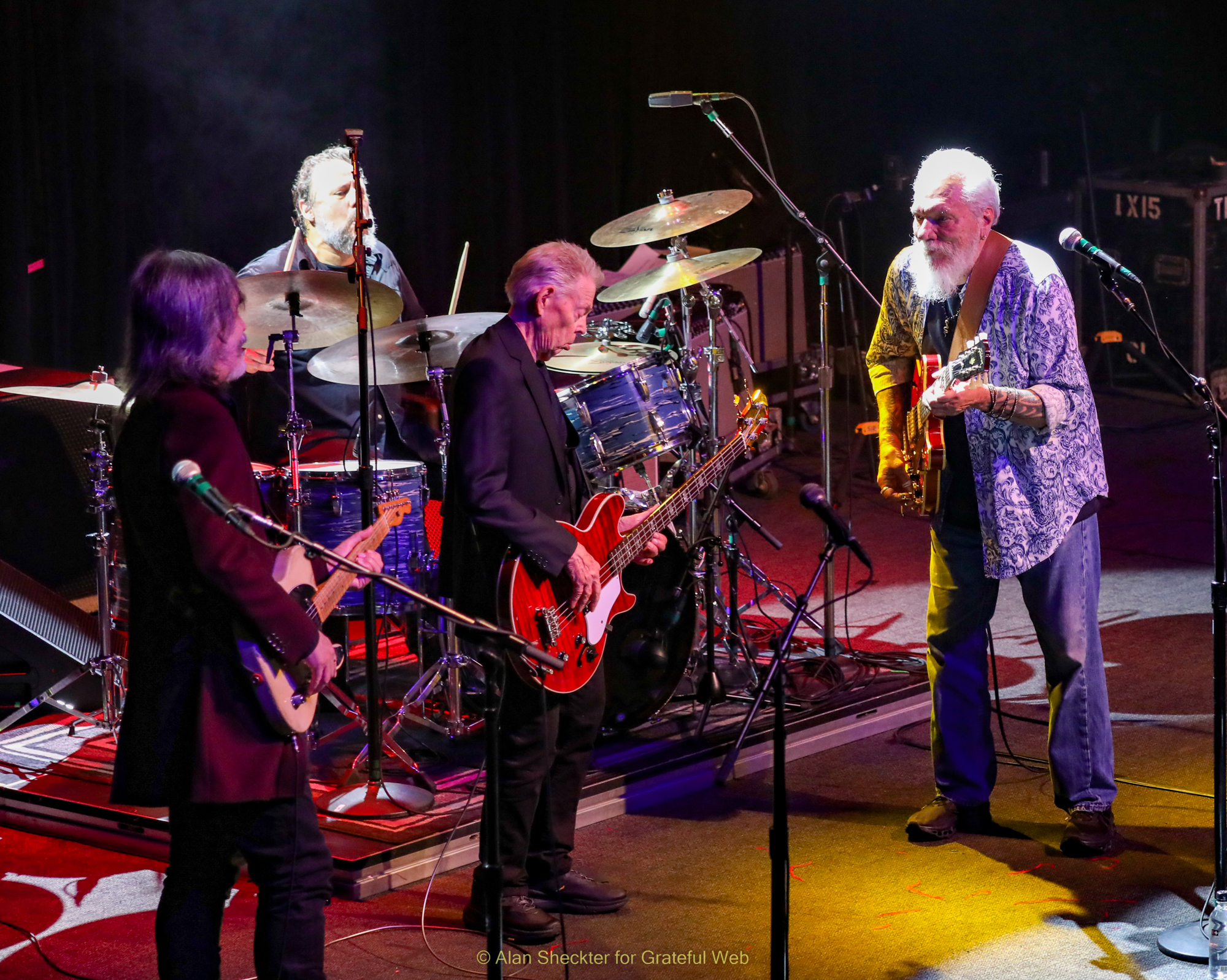
Casady’s melodic bassline delivery and style – tender to booming depending on the song and the moment – were as typical, extraordinarily grand. And Kaukonen’s intricate fingerpicking prowess remained undiminished, and included various techniques and tricks that are uniquely his. Guip has the perfect rock ‘n’ rhythm energy and prowess for Hot Tuna electric, and his beats were right on all night, prominent and purposeful yet never overpowering the rest of the band.
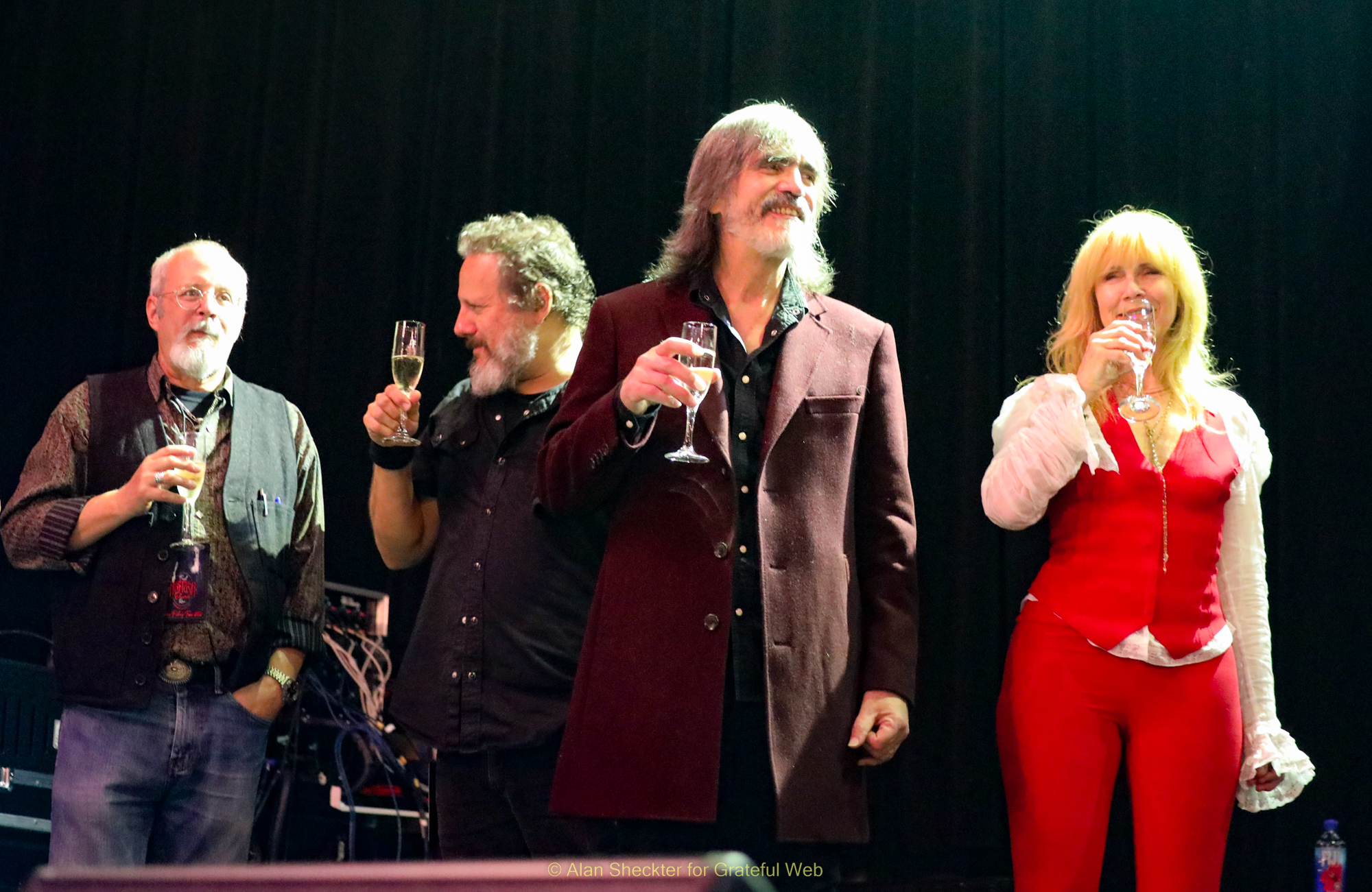
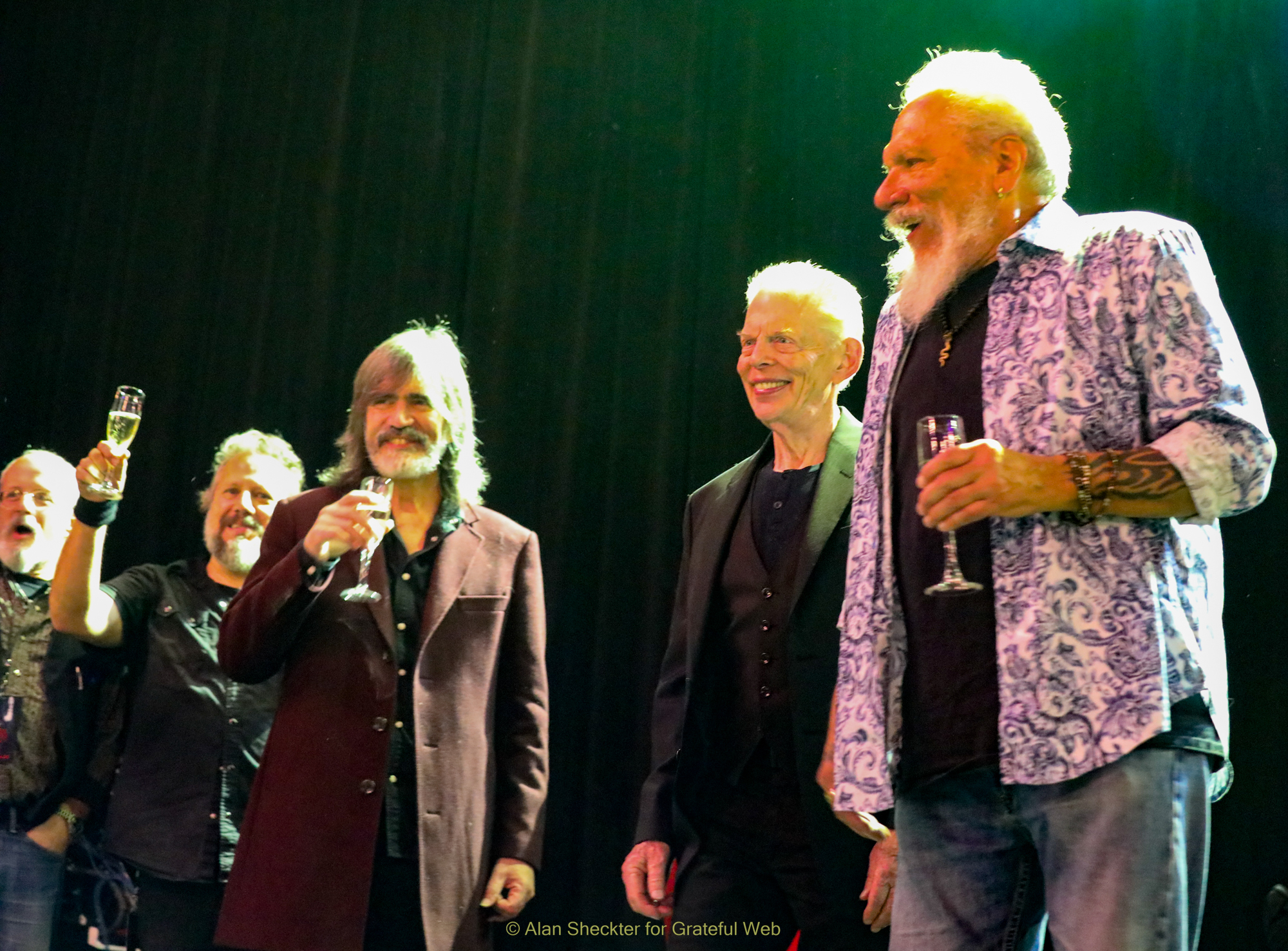
Just prior to the second set, Sears led a champagne toast from the stage – everyone in the room was given a glass – to Hot Tuna, their overall longevity, and their Fillmore appearances. Casady had pointed out earlier that he and Kaukonen, with the Jefferson Airplane, first played the Fillmore on December 10, 1965 at a San Francisco Mime Troupe benefit that also included The Great Society, John Handy Quintet, The Mystery Trend, Sam Thomas & The Gentlemen’s Band, and the Grateful Dead. The ticket price was $1.50, according to that event’s poster. Sears looked out over the room and said there were three people in the house who were there on that December night in 1965: Eileen Law, Carolyn Garcia, and Rhoney Stanley. He also gave a touching mention of Bill Graham, the San Francisco-area concert impresario still beloved and in people’s consciousness some 32 years after his passing. The historic Fillmore, so well-known as a cultural and music gathering place and hotspot during the San Francisco psychedelic movement in the 1960s, was initially called the Majestic Ballroom and first opened in 1912.
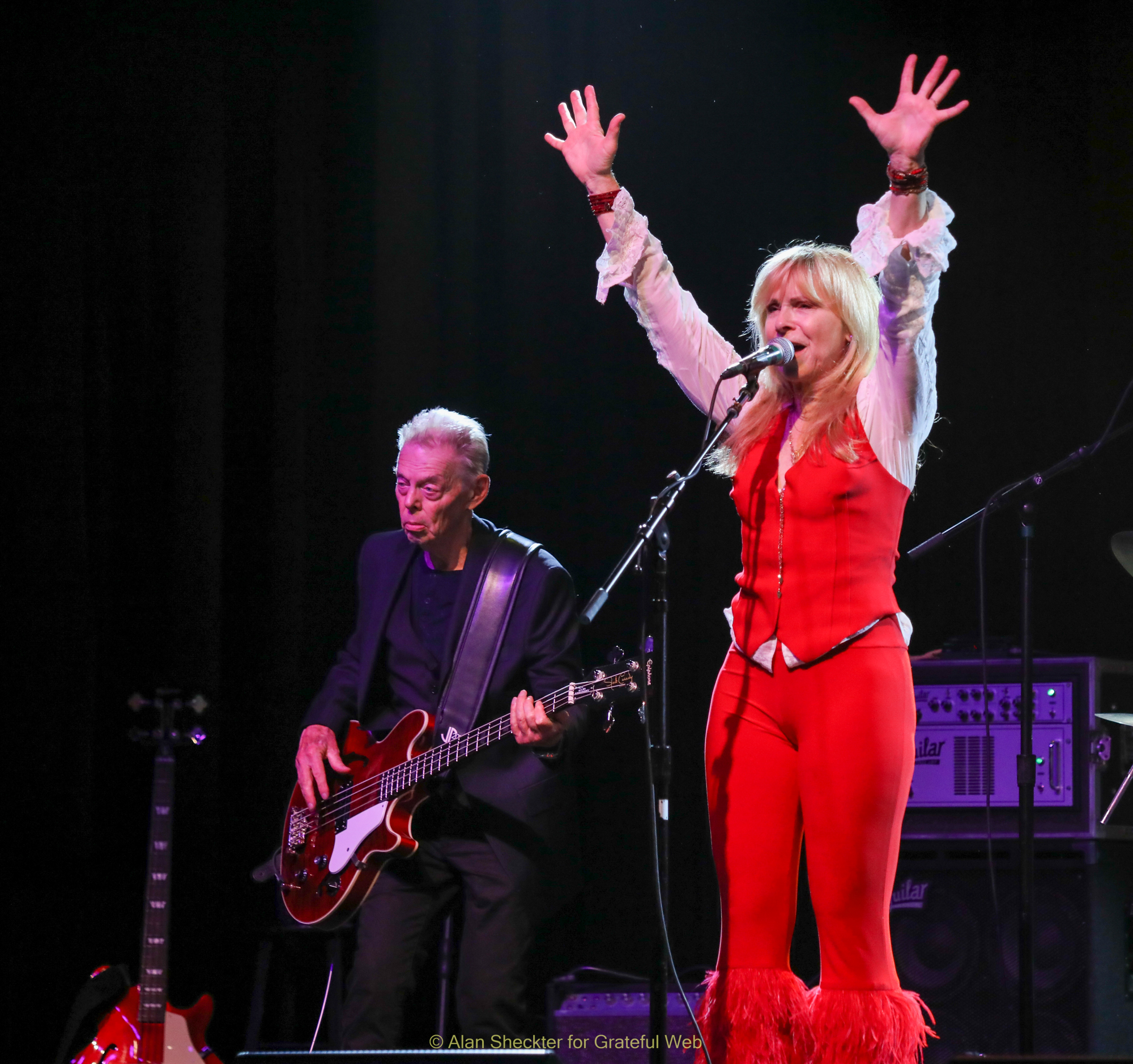
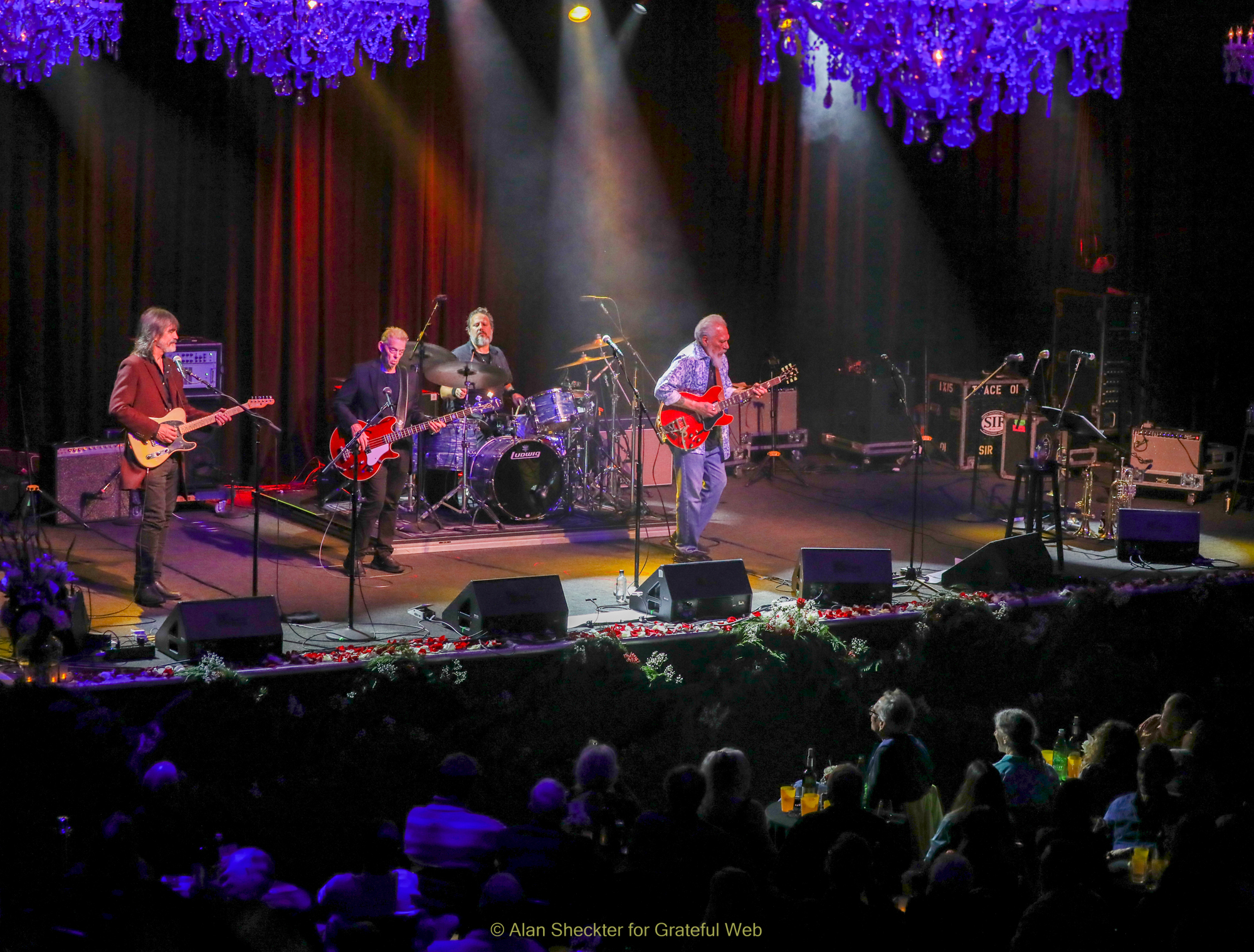
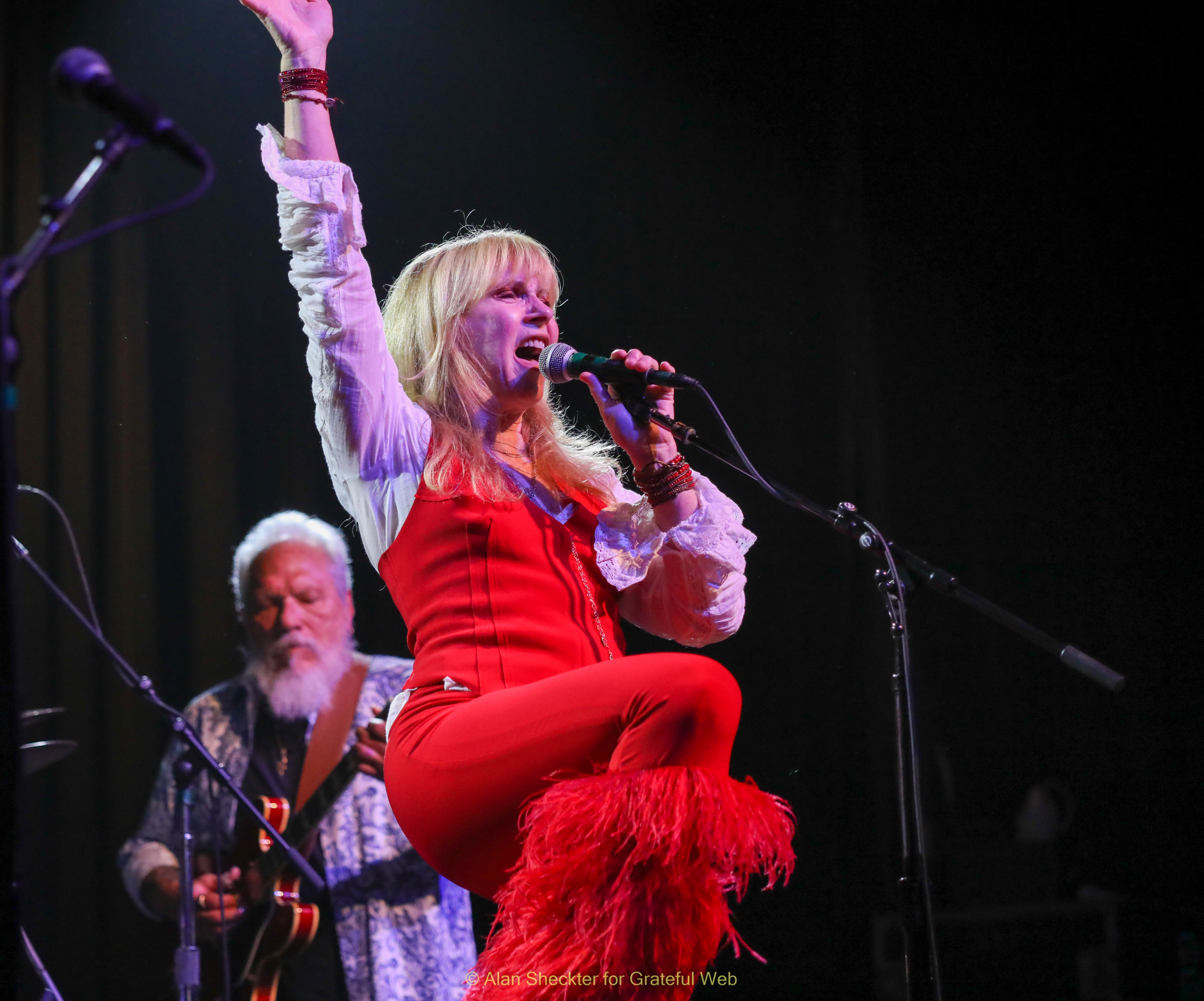
The second set included lots of material that originally came out of the Jefferson Airplane catalog. It began with a Hot Tuna rarity, “John’s Other,” a party-time instrumental written and led by the late Papa John Creach (and which he performed with the Jefferson Airplane and Hot Tuna). Here, featuring Campbell on fiddle, Hot Tuna offered a fun, exceptional version of the historic ditty. Early second-set offerings included two Jefferson Airplane songs, “Trial By Fire” and a stretched out “Good Shepherd,” the first of which was written by Kaukonen and the latter, offered here with Campell and Williams onstage, is considered to be a “traditional” song, arranged by Kaukonen. “Death Don’t Have No Mercy,” a Rev. Gary Davis song that Hot Tuna has performed since 1969, was next.
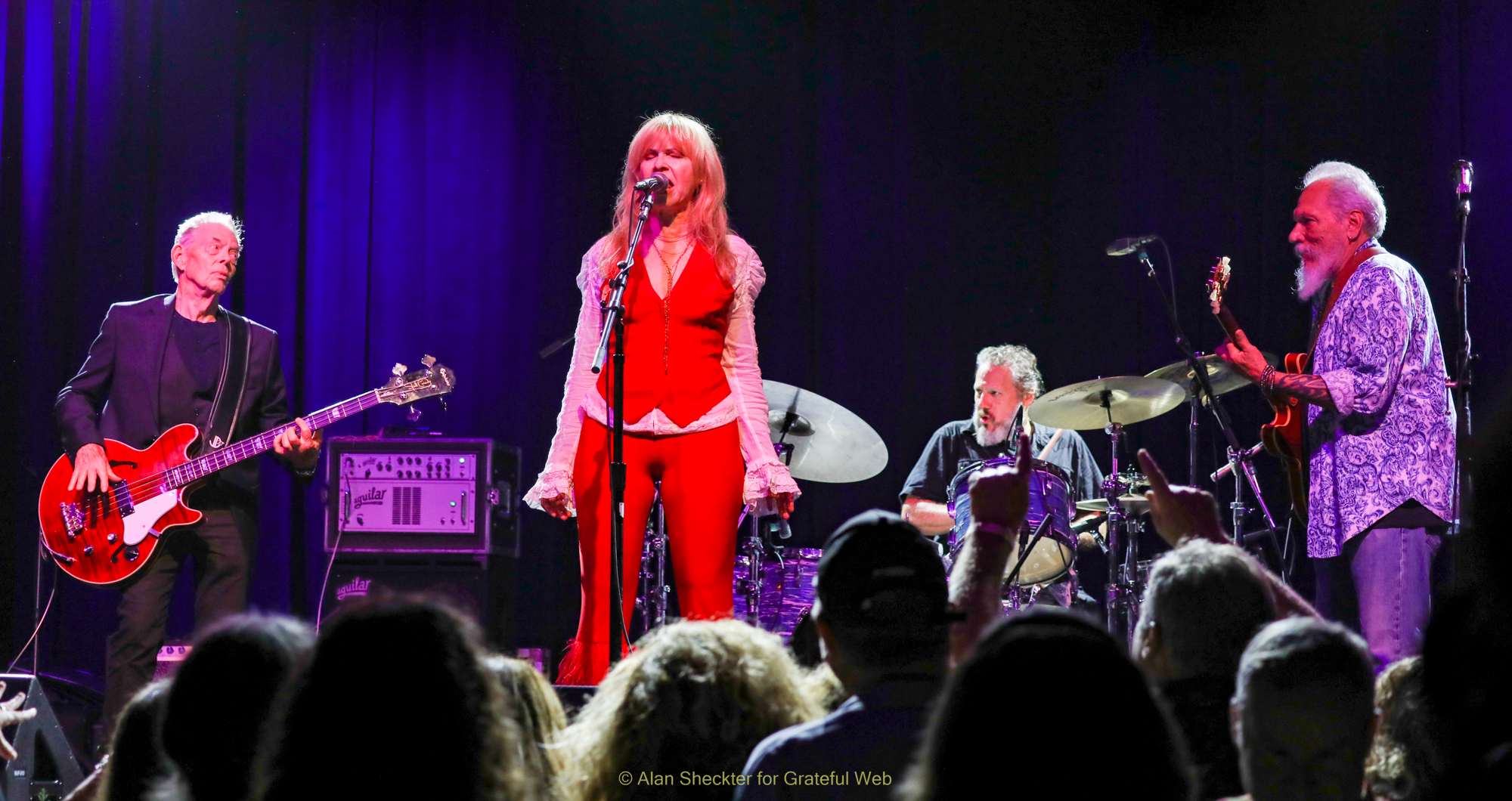
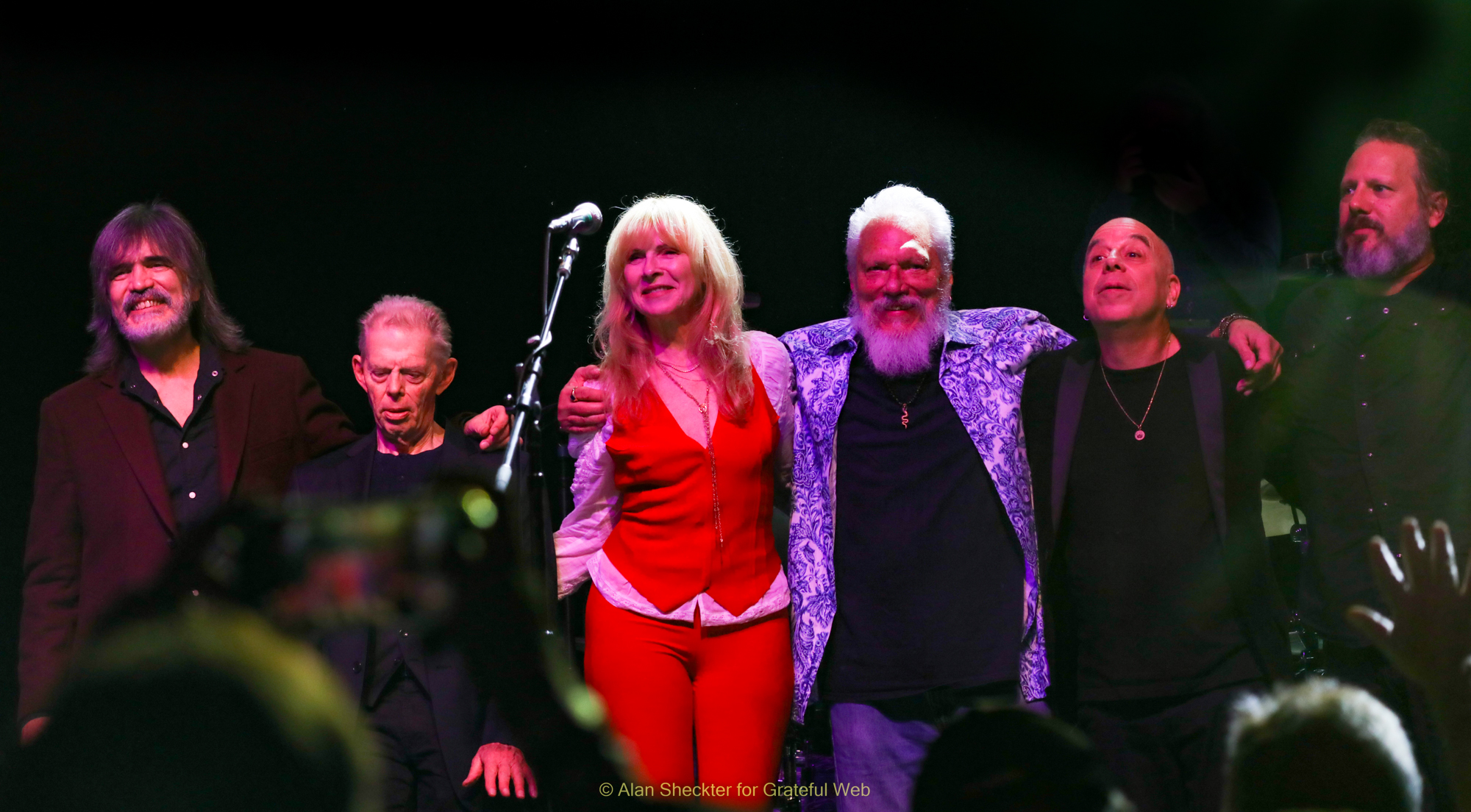
The closing sequence of the second set included four blistering tunes that hearkened back to the musical muscle the band use to flex for hours and hours per night in the mid-1970s as a trio – then featuring Kaukonen, Casady, and Bob Steeler on drums. This included “Hit Single #1”; B.B. King’s “Rock Me Baby,” which was part of the Jefferson Airplane repertoire and which Hot Tuna has also performed since 1969; “Bar Room Crystal Ball” with Campbell and Williams; and set-ender “Funky #7.” The band quickly returned for a Williams-sung version of “White Rabbit,” a rare selection for Hot Tuna that brought the house down.
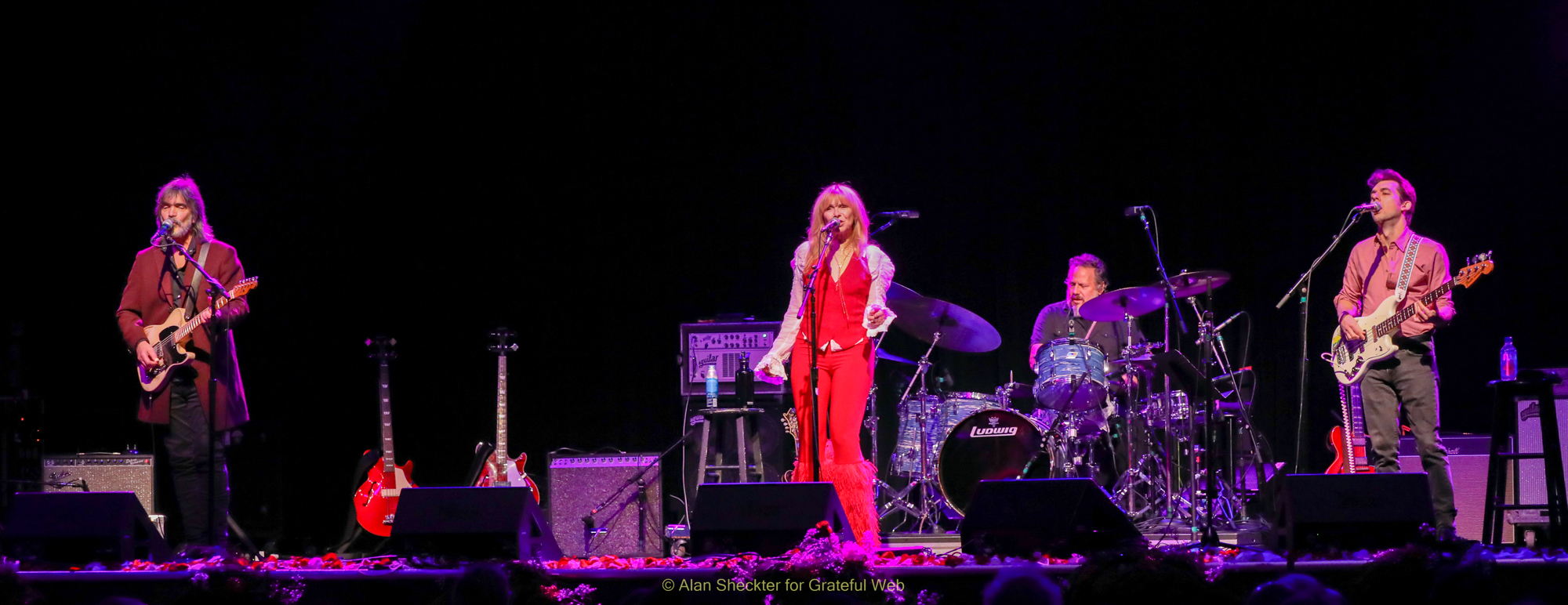
Prior to Hot Tuna’s performance, Campbell and Williams led a preliminary set that included Brandon Morrison on bass and eventually, Guip on drums. They opened with Rev. Gary Davis’s “If I Had My Way” (“Samson and Delilah”). The group also delivered The Louvin Brothers’ 1956 country hit, “You’re Running Wild,” and “Poor Old Dirt Farmer,” a Tracy Schwartz/New Lost City Ramblers song that appeared on Levon Helm’s 2007 album, “Dirt Farm,” which featured Campbell (who also produced the record), Williams, and Guip. The initial set closed with “Angel of Darkness,” with Kaukonen, who co-wrote the song, on guitar.
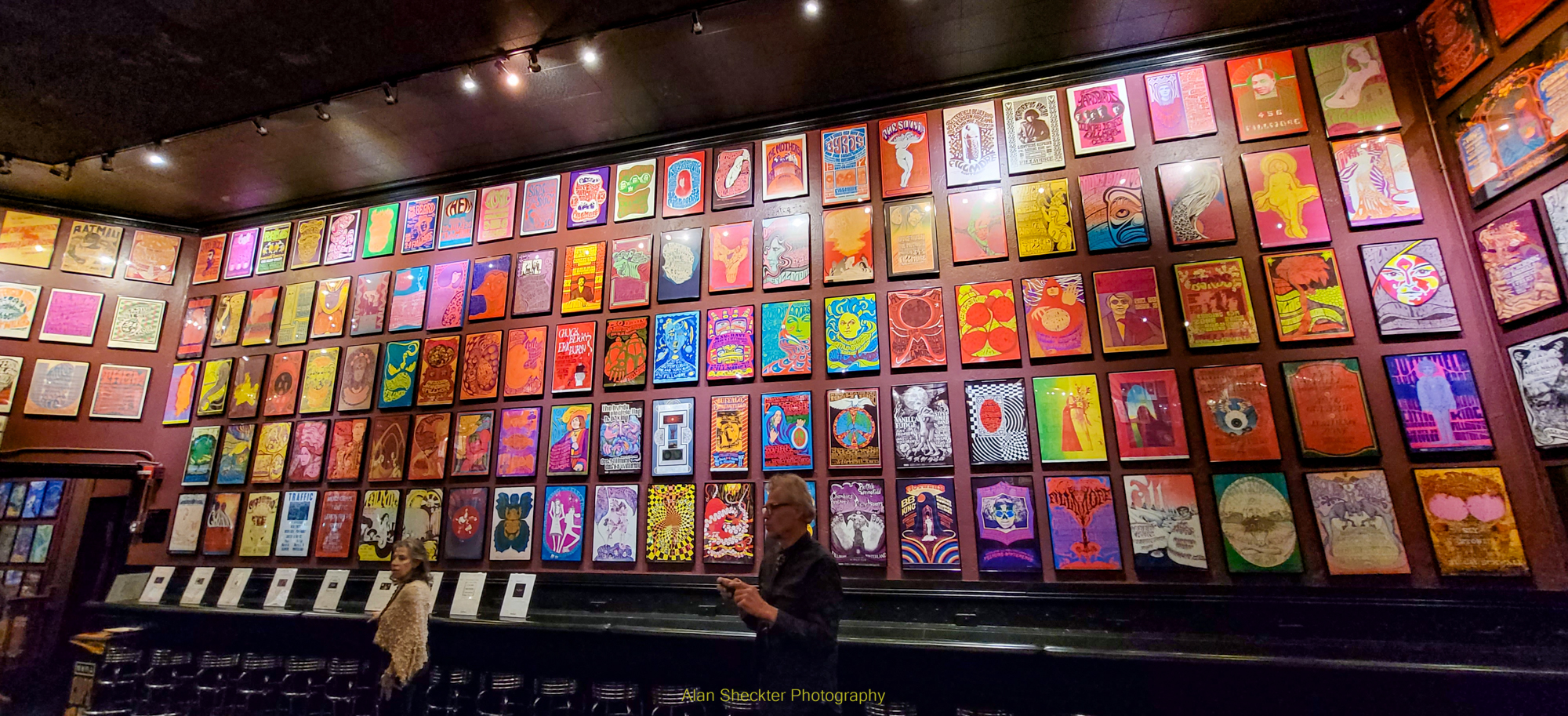
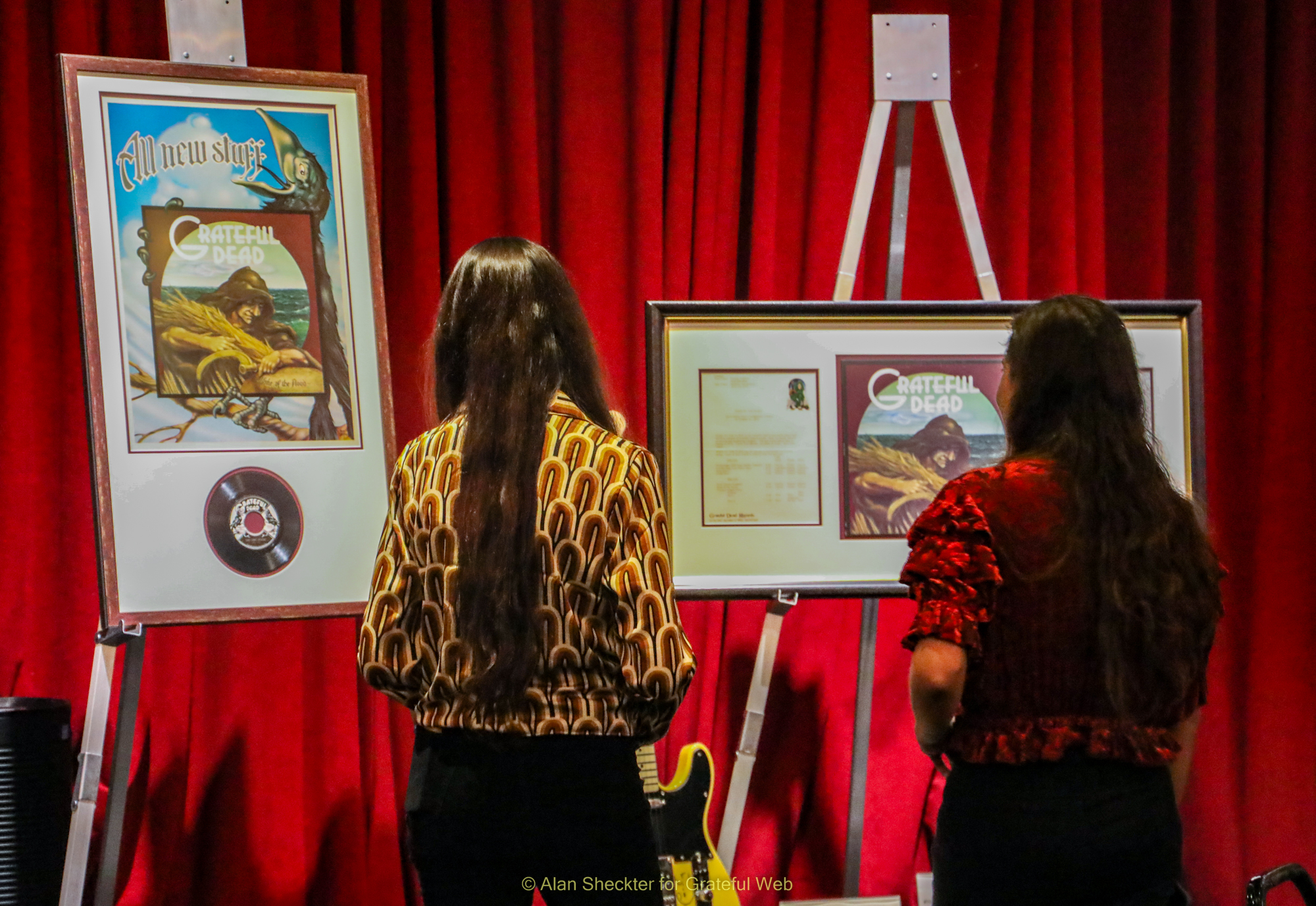
The evening included a large silent auction in the Fillmore’s upstairs Poster Room that was destined to bring in a generous amount of donations to the Rex Foundation. Some of the Foundation’s grants to nonprofits in 2023 have included funding for the following: a) Huichol Center for Cultural Survival and Traditional Arts – located in the remote town of Huejuquilla el Alto, Jalisco, Mexico; b) the Young Chances Foundation, of South Philadelphia; c) the Jamaica Environment Trust; and d) the Edelic Center for Ethnobotanical Services, of Eugene, Oregon, which “aims to maximize human potential by educating, extending knowledge, and creating a wisdom-sharing community centered around ethnobotanicals, psychedelic culture, and the deep insights that result from their safe use.” Other Rex Foundation grants in 2023 included funding for Healing Broken Circles, which “provides alternatives to punitive systems of incarceration and deficiency-based social services,” and The Roots of Music, based in New Orleans.
Odds and Ends:
Reminiscent of the Bill Graham Fillmore days, after the show we all shuffled out to the soothing sounds of “Greensleeves” being played over the PA system.
Kaukonen, now 82, and Casady, 79, deserve kudos for standing and playing for the entire show. There were no chairs in sight
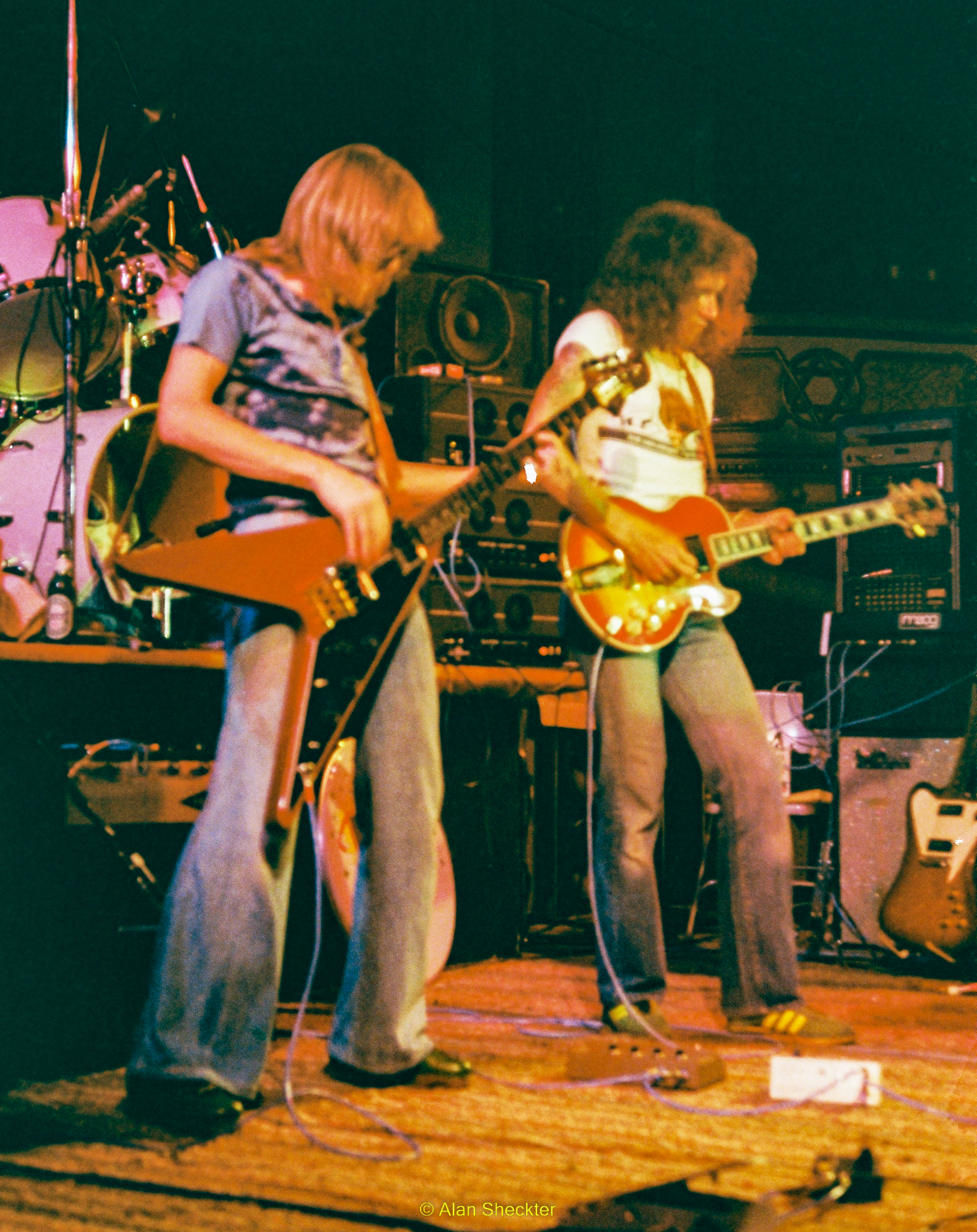
Kaukonen wrote the following on his blog, December 5, 2023, a few days after the Fillmore shows: “I remember as a younger man reveling in the continuity of life. You’re in the throes of something you love and it feels as if the future is an open highway… it’s just going to last forever. You hold on to that feeling as you age in the mirror and one day it becomes apparent that it’s not going to last forever and that you need to take a moment to be grateful for the gifts time has given you.”
Opening set, featuring Larry Campell and Teresa Williams: Samson and Delilah, Desert Island Dreams, I Love You (by Julie Miller), You’re Running Wild, Poor Old Dirt Farmer, Ragtime Annie (fiddle tune), Angel of Darkness.
Hot Tuna set one: Been So Long, Hesitation Blues, That’ll Never Happen No More, Ice Age, Ode to Billy Dean, Highway Song, I Don’t Want to Go, Bowlegged Woman, Knock Kneed Man, Keep Your Lamps Trimmed and Burning
Hot Tuna set two: John’s Other, Sleep Song, Trial by Fire, Good Shepherd, Death Don’t Have No Mercy, Hit Single #1, Rock Me Baby, Bar Room Crystal Ball, Funky #7.
Encore: White Rabbit





